Day 2 Speakers
Featured Speakers
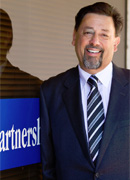
Executive Director (Engagement and Partnerships)
The University of Melbourne
Australia
BIOGRAPHY
Mr. Jerry T de la Harpe
Jerry is a member of the senior management team at The University of Melbourne having taken up the appointment of Executive Director (Engagement and Partnerships) in mid 2010. The position is directed to the implementation of key parts of the University's engagement agenda, with a particular emphasis on developing strong links with external partners and establishing close working relationships across the University.
Previously, Jerry was Director of Commercialisation and Associate Director (Research) at the Peter MacCallum Cancer Institute, where over a 10-year period he largely focused on the business development and commercialisation aspects of the Institute's research effort, with a strong leaning on developing whole-of-institution joint ventures, partnership clusters and multi-corporate research co-operatives . This embraced company 'start-ups' and the negotiation of a wide array of structures and agreements mainly, with the pharmaceutical and biotech sectors both within Australia, the USA, Asia and Europe.
From 1990 to 2000 Jerry was General Manager of the Howard Florey Institute of Experimental Physiology and Medicine (now the Florey Neurosciences precinct), then Australia's leading physiology research group. Prior to that appointment, Jerry had been the University of Melbourne's inaugural Head of its Contracts and Technology Transfer Office for some six years.
Prior to 1985, Jerry (a lawyer by training with business qualifications and an accreditation as a mediator) also worked in various Melbourne-based statutory corporations in senior management positions generally, in the capacity of a senior negotiator.
Discussion on Impact Assessment of Non-technology-related
Knowledge Exchange
ABSTRACT
Discussion on Impact Assessment of Non-technology-related Knowledge Exchange
- The establishment of a common nomenclature is generally regarded as a first important step in determining how to define and measure any impact of Knowledge Exchange ("KE") but before we get to that point how is KE to be defined? How does KE differ from "Knowledge Translation", "Knowledge Transfer" and "Knowledge Creation"? These differences in meaning generally matter in evaluating the impact of KE in different settings-community, social,.etc
- Non-Technology related Knowledge per se, may or may not have a value and perhaps, attempting to ascribe an impact to it for purposes of evaluation is the wrong approach. Should we not be looking at what KE aims to achieve and in what context it may prove useful? (Eg community experiences that inform researchers and policy-makers).
- Let's assume we have identified the forms and utility of KE and that those exchanges are an integral component of a larger institutional-engagement or partnership strategy, it would then seem reasonable to examine the validity of adopting certain qualitative and quantitative indicators of impact? Relying on case studies, these may comprise broadly:
- Increased partnership activity (and research projects) between the institution and key external stakeholders.
- Expanded opportunities for engagement as between the institution and its external community.
- Enhanced institutional capacity and capability.
- The critical challenge is to develop an "evaluation instrument" that will capture and measure in a meaningful and systematic manner the processes (how did it work?); the impacts (what happened?) and the outcomes (the wider ramifications?) resulting from KE.
- Developing a viable "evaluation instrument" must rely on the development of a programme logic that clearly enunciates KE strategies and outcomes (within an institutional context), and the evidence you need to demonstrate those impacts.
- In establishing measurement indicators it must also be acknowledged that the impact of KE is not necessarily static but can be transformative in its impact with the evolution of time. For instance, indicators would need to not only capture changes in behaviour and culture within say, a community but also the institution. The indicators could be context-independent, articulating broad objectives or context-dependent. In either context the quality, purpose and the level and intensity of the interactions should be considered.
- Taking Himmelman's typology of Partnerships as an exemplar of KE may help in developing an effective evaluation instrument. The typology distinguishes the following partnership types:
- Network Partnerships: Information exchange, individual trust.
- Co-operative Partnerships: altering activities; sharing resources and goals to achieve a common purpose, with a moderate level of trust.
- Collaborative Partnerships: Achieving a common purpose through resource-sharing and enhancing the capability of the other party with attached high levels of trust.
- Developing processes to support a measurement framework is also an essential ingredient. Consideration could be given to: interview processes; case study methodologies; engagement fora; the development of a relationship continuum ……….etc.
*Himmelman, A.T.(2002). Collaboration for a change (revised January 2002): definitions, decision-making models, roles and collaboration process guide.
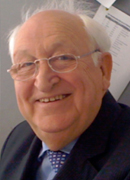
President
The Institute of Knowledge Transfer
United Kingdom
BIOGRAPHY
Sir Brian Fender
Sir Brian Fender is the President of the Institute of Knowledge Transfer, which is the recognised Institute for knowledge transfer professionals in the UK and Ireland. He is a previous chairman of BTG (2003-2008) helping to transform the company from the general commercialisation of intellectual property into a specialist pharmaceutical company.
Sir Brian's core career has been in higher education and research. Educated at Imperial College, he was for 17 years a lecturer in inorganic chemistry at Oxford University and a Fellow of St Catherine's College. He has been Vice-Chancellor of Keele University and the chief executive of the Higher Education Funding Council for England (1995-2001). He is a former Chairman of the Science Board of the Science and Engineering Research Council and Director of the International research laboratory Institut Laue Langevin in Grenoble France. He was a member of the HK UGC from 2004-08.
Innovation and Knowledge Transfer - Expectations and Delivery in HK
ABSTRACT
Innovation and Knowledge Transfer - Expectations and Delivery in HK
Innovation has never been a more crucial activity and it is the outcomes of innovation which are the lifeblood of knowledge transfer. The elements of innovation which lead to a healthy innovation environment will be discussed. To understand the role of knowledge transfer in the context of Hong Kong universities, the recent evolution of universities internationally will be described with particular reference to the UK. Research has become more professional and plays a large part in increasingly influential university rankings. Teaching and learning are much better described and there is an emphasis on learning outcomes. But the most profound change is the incorporation of knowledge transfer as a significant third mission for universities. Universities have for a long time engaged with industry and the community but these interactions were often opportunistic or altruistic. However the adoption of knowledge transfer at the level of mission opens up a whole raft of new considerations. These include the articulation of a strategy, capacity building and the marketing and dissemination of University expertise. A range of mechanisms for knowledge transfer also have to be explored which go beyond the familiar exploitation of intellectual property common to technology transfer. Adopting a goal for universities which explicitly centres on the benefits universities can provide for society, beyond their traditional strengths, raises the question of how that impact can be measured. These issues are considered in the context of present day HK UGC-funded institutions.
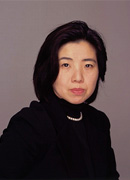
Chief Curator
Museum of Contemporary Art Tokyo
Japan
BIOGRAPHY
Ms Yuko Hasegawa
Yuko Hasegawa is a Chief Curator of the Museum of Contemporary Art, Tokyo (MOT). She is also a professor of the Department of Art Science, Tama Art University in Tokyo. At the 21st Century Museum of Contemporary Art Kanazawa, she was appointed as a Founding Artistic Director from 1999 to 2006. Since 2001, she is an International Arts Advisory Council for the Wexner Center for the Arts, a member of Asian Art Council at Solomon R. Guggenheim Museum, and from 2008, she is a board member of the West Kowloon Cultural District Authority. Artistic Director of Inujima Art Project.
Her recent projects are Ryoji Ikeda +/-[the infinite between 0 and 1] (2009), Neo Tropicalia (2008), and SPACE FOR YOUR FUTURE (2008) at the Museum of Contemporary Art Tokyo. In Sao Paulo, she has curated SEJIMA+NISHIZAWA/ SANAA(2008) at the Tomie Ohtake Institute, and When Lives Become Form at the Museu de Arte Moderna de Sao Paulo (MAM) (2008).
She has curated various international exhibitions: 7th Istanbul Biennale, Artistic Director (2001), 4th Shanghai Biennale, Co-Curator (2002), 50th Venice Biennale, Commissioner of Japanese Pavilion (2003), 4th Seoul International Media Art Biennale (Media City Seoul) (2006), co-curator, 12th Venice Architectural Biennale, Artistic Advisor (2010), 29th Sao Paulo Biennale, co-curator (2010).
21st Century Spaces — New Collaborative Approaches in Art and Architecture
ABSTRACT
21st Century Spaces — New Collaborative Approaches in Art and Architecture
Increased diversity in our lifestyles and values has engendered definitions of ‘public’ and ‘community’ that differ substantially from those used throughout the 20th century. Times of change require a social system that is flexible enough to adjust to these new environments; they also evoke a strong emotional response. In an age when politics and economics impact so greatly on our intellectual and emotional well-being, art and culture have become more necessary than ever. In this presentation, I will look at art museums and art spaces that function effectively in the 21st century. Drawing on examples that include the 21st Century Museum of Contemporary Art in Kanazawa and the Inujima Art House Project, I will cross-reference issues related to the cultural and global contexts of our social environment, our changing definitions of the individual, and characteristics of specific locales. I will also introduce the new relationship between art, architecture, and the public that was presented at the 2010 Venice Architecture Biennale. Through the use of cross-disciplinary keywords, such as ‘social networking’, ‘collective knowledge’, ‘symbiosis’ and ‘collaboration’, I will discuss the relationship between individual narrative or memory and social engagement, as well as the significance of art spaces as catalysts for dialogue.
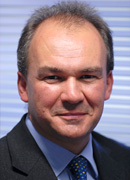
Managing Director
Isis Innovation Ltd
United Kingdom
BIOGRAPHY
Mr. Tom Hockaday
Tom Hockaday is the Managing Director of Isis Innovation Ltd, the technology transfer company of the University of Oxford. Tom joined Isis in March 2000, following seven years in technology transfer at Bristol University, where he was Managing Director of Bristol Innovations Ltd, and four years at University College London.
Tom has over 20 years experience working on the interface between universities and business. Tom was Chairman of UNICO in 2003, the UK's university technology transfer association, and has lectured around the world on the processes, systems and models of university technology transfer.
Isis Innovation is the University of Oxford's technology transfer company and manages the University's intellectual property portfolio, working with University researchers on identifying, protecting and marketing technologies through licensing, spin-out company formation and material sales. Isis files on average one new patent application each week, has concluded over 400 technology licensing agreements, and established 64 new spin-out companies from Oxford. Isis also manages Oxford University Consulting, which arranges consulting services providing clients access to the world-class expertise of the University's academics to enhance innovative capability. Last year OUC arranged over 150 consulting deals. Isis has established a separate business division, Isis Enterprise, offering consulting expertise and advice in technology transfer and open innovation to university, government and industrial clients around the world. Isis was founded in 1987 and is today one of the world's leading technology transfer and innovation management companies.
Isis Innovation - www.isis-innovation.comIsis Annual Report - www.isis-innovation.com/about/index.html
Roundtable Discussion on Impact Assessment of Technology Transfer
ABSTRACT
Roundtable Discussion on Impact Assessment of Technology Transfer
In the specific field of university Technology Transfer (IP, patenting, licensing, spin-outs, consulting) there is plenty to measure and plenty of stats to collect. These reflect activities as much as outputs, and we now need to focus on the impact of the outputs.
- 'What you measure is what you get' – be careful what you wish for
- Looking at the economic, social and policy impacts of the research outputs
- Transferring technologies to make the world a better place
- Learning how to ask the 'so what?' question politely, so academics want to answer it
- Telling stories that people remember and choose to re-tell
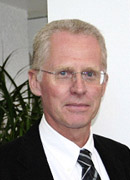
Director of Information Technologies and the Information Economy Program, and Professorial Fellow, Centre for Strategic Economic Studies
Victoria University
Australia
BIOGRAPHY
Professor John Houghton
John is currently Professorial Fellow at Victoria University's Centre for Strategic Economic Studies (CSES) and Director of the Centre's Information Technologies and the Information Economy Program. He has had a number of years experience in information technology policy, science and technology policy and more general industry policy related economic research. He has published and spoken widely, and is a regular consultant to the Organization for Economic Cooperation and Development (OECD) in Paris. In 1998, John was awarded a National Australia Day Council, Australia Day Medal for his contribution to IT industry policy development.
John's research is at the interface of theory and practice with a strong focus on the policy application of economic and social theory, and of leading-edge research in various relevant fields. Consequently, his contribution tends to be in bringing knowledge and research methods to bear on policy issues in an effort to raise the level of policy debate and improve policy outcomes.
Major foci for John's recent research have been a series of studies exploring the economic implications of alternative scholarly publishing models, and studies on the costs and benefits of open access to public sector information, and the curation and sharing of research data.
For further information see:
http://www.cfses.com/staff/jhoughton.htm
http://www.netspeed.com.au/jhoughton/
Exploring the Economic Impacts of Open Access to Publicly Funded Research
ABSTRACT
Exploring the Economic Impacts of Open Access to Publicly Funded Research
An increasing number of funding bodies and research organizations around the world request that publications, and sometimes research data, arising from their funded research be made openly and freely available on the Internet. They do this in the belief that open access increases the economic and social impacts of the research, generating a higher return on their investment.
The release of our UK report Economic implications of alternative scholarly publishing models generated considerable interest and debate. That interest led to a number of follow-on studies, including national studies in the Netherlands and Denmark, and a three-country comparison, which we presented to the European Commission, comparing the impacts of alternative publishing models in one of the larger, a mid-sized and one of the smaller European countries.
During 2010, there were four further projects. The first focused on Germany, and brought the German National Licensing Program (NLP) into the mix of alternative scholarly communication models. The second used the EI-ASPM model to examine the cost impacts of alternative scholarly publishing models for a sample of UK universities. The third significantly extended one aspect of the underlying method used in the original study to explore the possible return on investment implications of the proposed US Federal Research Public Access Act. The fourth approached the issues from the user perspective, exploring the information needs and access levels of small high-technology firms in Denmark, and estimating the economic impact of academic research for such firms. More recent work includes a study for the Australian National Data Service looking at the economic impacts of more open access to public sector information and research data.
This presentation will summarise what these projects reveal about the viability of open access models and their potential impacts on research and the communication and application of publicly funded research findings. For more information see http://www.cfses.com/EI-ASPM/
Acknowledgements
The speaker would like to acknowledge the contributions of many collaborators on these various projects and the support of project funders, including the UK Joint Information Systems Committee (JISC), the Netherlands SURFfoundation, The Danish Ministry of Science, Technology and Innovation and Denmark's Electronic Research Library, The European Knowledge Exchange, the German Research Foundation (Deutsche Forschungs gemeinschaft), the US Scholarly Publishing and Academic Resources Coalition (SPARC), and the Australian National Data Service (ANDS).
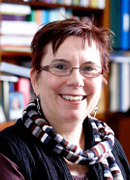
Director
Arts Innovation and Impact Centre
Professor of Religious Studies
Director
The Arts and Humanities Research Council's 'Diasporas
Migration and Identities' Programme
University of Leeds
United Kingdom
BIOGRAPHY
Professor Kim Knott
Kim Knott is a founder member of the new Arts Innovation and Impact Centre at the University of Leeds where she is also Professor of Religious Studies. She was Director of the Arts and Humanities Research Council's 'Diasporas, Migration and Identities' Programme from 2005-11, and in the final year was awarded an Impact Fellowship in order to maximise the wider public benefits of the Programme's research. She has directed many collaborative research projects in association with which she has worked with public bodies, community organisations, the media and the UK Home Office. Her recent research has been on the relationship between religion and its secular contexts and relations, and on religion, place and space. She is writing a co-authored book on Media Portrayals of Religion and the Secular Sacred (Ashgate). Her previous books include Diasporas: Concepts, Intersections, Identities (co-edited with Seán McLoughlin, Zed Books, 2010), The Location of Religion: A Spatial Analysis (Equinox, 2005) and Hinduism: A Very Short Introduction (OUP, 2000).
Evidencing the Difference We Make: Evaluating and Narrating the Impact of UK Arts and Humanities Research
ABSTRACT
Evidencing the Difference We Make: Evaluating and Narrating the Impact of UK Arts and Humanities Research
In the UK today applying and translating arts and humanities research and widening public access to its findings is no longer an option for a few engaged researchers. Identifying and assessing the social, cultural and economic benefits of the research we do is rapidly becoming a requirement. Both the forthcoming Research Excellence Framework (REF 2014) – in which academic research is assessed – and the UK Research Councils (including the AHRC) have included 'research impact' as a key feature of their research review procedures. These changes are driven by a need for accountability to government regarding the value and benefit of the research it funds.
These requirements have led researchers, universities and research councils to think hard about how research impact can be evaluated, measured, evidenced and reported. It is recognised that part of this process is quantitative – particularly in terms of economic benefit, but also in relation to establishing how many people access websites, attend events etc – but it is now widely accepted that such an approach provides a limited picture. The inclusion of social and cultural benefits, including wellbeing, public awareness and widening access to research, and the recognition that evaluation of impact must include a qualitative approach and narration as well statistics has significantly altered the meaning of impact assessment.
Following a discussion of the emergence in the UK of this new phase of impact assessment and its consequences for the arts and humanities, the following issues will be examined.
- The drivers and resources for impact assessment: the HEFCE Research Excellence Framework and the research council requirements
- Evaluating impact using a qualitative approach
- Learning from partners and external organisations
- Using narrative to describe and report on impact.
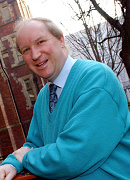
Director of Enterprise and Knowledge Transfer
Faculty of Arts
University of Leeds
United Kingdom
BIOGRAPHY
Professor Christopher Megone
Professor Chris Megone is the Knowledge Transfer Director for the Faculty of Arts at the University of Leeds in the UK. He is Professor of Interdisciplinary Applied Ethics and also the Director of Inter-Disciplinary Ethics Applied, a national Centre for Excellence in Teaching and Learning (the IDEA CETL) located at the University of Leeds. Professor Megone is also Director of the MA in Health Care Ethics, and of a new Online MA in Applied and Professional Ethics.
He has been Director of the Centre for Inter-Disciplinary Ethics Applied since its inception in 2005, following a successful £3 million bid for a new Centre of Excellence. The Higher Education Funding Council for England organised a competitive national program for Centres for Excellence in Teaching and Learning. Based on the excellence achieved at Leeds in genuinely interdisciplinary medical ethics teaching which Professor Megone led for ten years, the CETL was awarded to Leeds as part of the program. The CETL is now developing this excellence in other areas such as engineering ethics, business ethics, ethics for biosciences, environmental ethics and media ethics.
It is also developing its own Knowledge Transfer program in Business and Professional Ethics. It has been awarded grants by the Royal Academy of Engineering to develop this activity specifically for engineering businesses, with subsequent awards from the Institute for Engineering and Technology, and the Institute for Chartered Accountants in England and Wales. It also now leads a Professional Ethics Network and is in the process of initiating the Leeds Institute for research on the Professions, which is affiliated to the European Council for the Liberal Professions.
Together with its sister Faculty in Performance, Visual Arts and Communications, the Faculty of Arts at Leeds is acknowledged as a national leader for Innovation and Impact activity in the Arts and Humanities (Knowledge Transfer), and figures in a recent Arts and Humanities Research Council publication as an exemplar for the way in which these areas can impact on regional identity, regional regeneration, public policy, and quality of life.
Professor Megone holds a bachelor's degree and a doctorate degree in Philosophy from the University of Oxford. He has particular expertise in Ancient Philosophy (Plato and Aristotle), Ethics and Applied Ethics. Prior to joining Leeds, he taught at the University of York for eight years. In 2006, Professor Megone was awarded a National Teaching Fellowship. He is one of the only three philosophers in the UK to have received such an award.
Panel Discussion on Impact Assessment of Non-technology-related Knowledge Exchange
ABSTRACT
Panel Discussion on Beyond the Measurable? Impact Assessment of Non-technology-related Knowledge Exchange
IImpact assessment in Arts and Humanities:
I. Reflections on the Development of Impact Assessment for REF 2014
II. Assessment via Impact Case Studies
III. Current Structure of a Case Study – Title, Summary of the Impact, Underpinning References to Research; Details of the Impact; Sources to Corroborate Impact
IV. Points arising around assessment via current structure
a) Title
b) Summary of the Impact
c) Underpinning research
1. Research insights that led to the impact.
2. Recent research and impact.
d) References to the underpinning research
3. Quality. Research and impact in parallel. Research underpinning impact.
e) Impact
4. The definition of impact for REF2014
5. Eligible period
6. Identifying the impact.
7. The wider context of the impact.
8. How did the research lead to the impact?
9. Advisory roles.
10. What is not impact.
11. Impacts on the HE sector.
12. Public engagement with research
13. Evidence
f) Corroboration
g) Presentation/Style
14. Cases “… the wrong way ‘round…”.
15. A coherent story.
16. Cases which set out a goal.
h) Other
17. Impact which results in something not happening.
i) Method: Impact Trees
j) Brief description of a couple of good cases
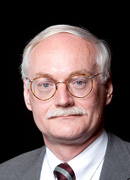
CEO & Rector Magnificus
Nyenrode Business Universiteit
The Netherlands
BIOGRAPHY
Professor dr. Maurits van Rooijen
Since 2009, Dr. Maurits van Rooijen FRSA has been the Rector Magnificus of Nyenrode Business Universiteit. He is also the CEO of Universiteit Nyenrode BV. In August 2010, Van Rooijen was appointed Professor of Academic Entrepreneurship, Internationalization and Innovation in Higher Education at Nyenrode.
Van Rooijen is an economic historian who obtained his doctorate at Utrecht University on the theme of green urbanization. He has held positions at several universities, including Leiden University, Erasmus University Rotterdam and Victoria University in Melbourne. As a visiting professor, Van Rooijen has been associated with a variety of educational institutions worldwide.
Van Rooijen also holds various international administrative positions. He is, for example, Co-Chairman of the World Association for Co-operative Education (Boston MA, USA), which supports work-integrated learning. Furthermore, he is President of the Compostela Group of Universities (Santiago de Compostela, Spain), an association that stimulates cooperation and dialogue in the field of higher education. Van Rooijen is also Vice President of the London-based European Access Network, that encourages under-represented groups to participate in higher education, and Chairman of the Managing Board of the Euro-Mediterranean University in Slovenia, an initiative of the European Parliament.
Prior to his position at Nyenrode, from 1993, he was responsible for expanding the international position of the University of Westminster in London, from 2003 onwards as Executive Vice-President for International and Institutional Development.
Knowledge-learning-work: Making Higher Education Fit for Future Needs
ABSTRACT
Knowledge-learning-work: Making Higher Education Fit for Future Needs
The assumption behind my presentation is that universities should take some responsibility for the careers of their students after graduation, rather than just rely on the institutional reputation to validate a degree.
Partly this can be done by strengthening the university education, which traditionally focuses on knowledge acquisition and development of analytical and social skills, with experiential learning. The most common form of incorporating experiential learning is integrating a substantial element of work experience that helps students to understand the connection between theory and practice and most importantly help them to develop their ability to learn through reflection. The value of this integration of experiential learning to future careers is well understood but in my presentation a further dimension will be added: that universities should consider adding to such work-integrated learning, opportunities for learning-integrated work. To put it simple: that universities stay connected with their graduates throughout their working lives and have available advance level learning on a 'just-in-time' basis. As an example Nyenrode Business University will be introduced that aims to have half of its operations in degree education and the other half at post-degree level. This approach will reinforce the position and usefulness of universities as the pivotal knowledge centres in society whilst also making them less dependent on demographics.
Invited Speakers
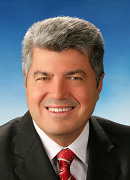
Director
Entrepreneurship Center
Consultant
HKUST Business School
The Hong Kong University of Science and Technology
BIOGRAPHY
Professor Ali BeBa
Prof. Beba graduated from the Middle East Technical University, Turkey and received his PhD in chemical engineering from the University of Tulsa, Oklahoma, USA. In his 30+ years of profession, he has worked extensively in and outside of Turkey for a range of public and private institutions as well as NGOs, including Smithco Engineering Inc, Procter & Gamble, UNEP, EU and WB. He served as the Chairman of the Environmental Protection and Packaging Waste Recovery & Recycling Trust (CEVKO) and taught engineering, business and entrepreneurship in academic institutions including Colorado State University in the USA; Ege, Yıldız Technical Universities and Ozyegin University in Turkey. In addition to his academic duties, he provides services for SMEs and NGOs to support their R&D projects and help them to draft professional business plans. He was the Academic Director for the Center for Entrepreneurship of Ozyegin University in Istanbul where he taught entrepreneurship to UG and MBA students and executed international outreach entrepreneurship activities such as, the Goldman Sachs Foundation (GSF)'s Global 10000 Women Entrepreneurs Program, European Forum for Entrepreneurship Research (EFER) and Life Long Learning (LLL) projects for EU. Prof. Beba is currently the Consultant of HKUST Business School and he is also the Director of the HKUST Entrepreneurship Center.
Awakening Entrepreneurship in Knowledge Transforming Societies
ABSTRACT
Awakening Entrepreneurship in Knowledge Transforming Societies
Entrepreneurship is at a crossroads in East Asia. The former Asian Tigers — Hong Kong, Singapore, South Korea and Taiwan — have turned largely to technological innovation, constantly reinventing consumer goods and gadgets at ever-lower prices. Business innovation — the creation of wealth in new ways — is retreating, pushed on by generational change in populations and at the helms of once dynamic corporations. At stake is the prosperity that is all too often considered permanent. In an era of corporations spanning the globe it is well worth recalling that small business established by entrepreneurs drives the world economy. Entrepreneurs use their initiative and imagination to generate breakthrough products and services. Whether social or monetary, wealth is at the very centre of the entrepreneurial spirit. Yet, wealth can be transitory. East Asia's population is ageing rapidly, which has the potential to restrict economic growth. The environment for fostering entrepreneurialism in the region is good but by no means great. R&D is limited throughout the region, with most innovation driven by foreign investors, and there are few incubation centers and limited angel investors and VCs from whom entrepreneurs can benefit. Family businesses predominate in this region, with often less than ideal succession planning, governance and financing. Very few family businesses survive to the third generation. As the economies of East Asia, including China, become freer, problems such as these will proliferate. In places with limited land, most notably Singapore and Hong Kong, "me too" investment mostly in real estate by family businesses intolerant of failure has the potential to create economic bubbles that could burst at any time. Obviously, this must change, and quickly. There is an urgent need to revive the spirit that drove entrepreneurs in East Asia to create an economic powerhouse of the region. Family businesses have the responsibility to reform themselves through professionalization and independent management. Governments, too, must develop adequate and enforceable frameworks in such areas as corporate governance and the protection of IP. The tertiary education sector also has an obligation to revive the flagging spirit of entrepreneurship in the region. HKUST, being well aware of its responsibility in this area, has started to implement campus-wide entrepreneurship programs and activities. The University currently is in the process of renewing its philosophy and restructuring the organizational structure of its EC which was established in 1999. HKUST 2011 Entrepreneurship Competition of May 17th, (http://onemilliondollar.ust.hk) was launched with this new philosophy and an expanded scope. This helped to promote the development of an entrepreneurial ecosystem at the campus and its impact was felt in the region. These efforts will be increased in-line with the concept of 1-HKUST in the coming year since the prosperity, and the future in knowledge transforming societies of this region well depend on awakening entrepreneurship.
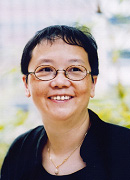
Professor of Journalism
Director
Journalism and Media Studies Centre
The University of Hong Kong
BIOGRAPHY
Professor Yuen Ying Chan
Ying Chan is a writer, educator, China media expert, and the founding director of the Journalism and Media Studies Centre at The University of Hong Kong. As an academic unit of HKU, the JMSC offers professional graduate and undergraduate degrees in journalism, and MPhil and PhD degrees. Prior to joining HKU in 1998, Chan spent 23 years working as a journalist in New York City, where she reported for the New York Daily News, NBC News, and Chinese language dailies, Chan's honours include a Nieman Fellowship at Harvard University, a George Polk Award for journalistic excellence and an International Press Freedom Award by the Committee to Protect Journalists.. She is the co-Public Lead of Creative Commons Hong Kong; a board member of the Media Development Loan Fund, an investment fund for independent media worldwide; and the chair of the World Economic Forum Council on Informed Societies. She writes regularly on China's media and media development issues and has co-edited two books on China's media.
Creative Commons: An Innovative Copyright Model to Promote Creativity and Knowledge Sharing
ABSTRACT
Creative Commons: An Innovative Copyright Model to Promote Creativity and Knowledge Sharing
Creative Commons (CC) is an international system of intellectual property rights management through which creators can choose to distribute their works with “some rights reserved”. An innovative copy-right protocol for the digital age, CC promotes the values of sharing, openness and collaboration. In 2008, the Journalism and Media Studies Centre of HKU, worked with professors Alice Lee and Li Yahong of the HKU Faculty of Law and community volunteers to bring CC to Hong Kong. Since then, more than 400,000 pieces of creative work have been licensed under CC in HK.
Professor Ying Chan, co-community lead of CCHK, will discuss how CC has helped to promote creativity and knowledge exchange, and the significance of the growing international CC movement. She will also discuss Hong Kong’s experience in the implementation of CC licenses, and how the licenses could be used to promote the creative work of both faculty and students. CCHK works with Creative Commons International (http://creativecommons.org/international/) to localize and promote the use of CC licenses in Hong Kong.
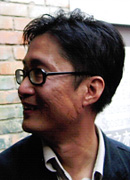
Associate Professor
School of Architecture
Director
Urban Place Research Unit
School of Architecture
The Chinese University of Hong Kong
BIOGRAPHY
Professor Wallace Ping Hung Chang
Prof. Wallace Chang is currently Associate Professor, Director of Urban Place Research Unit at the School of Architecture, Chinese University. Graduated from MIT and HKU with studies on urban design and architecture, a theorist and practitioner in architecture, urban design, community education and public art, Chang has an extensive experience in urban conservation, human landscape, sustainable planning, public space and vernacular culture, particularly at the Pearl River Delta (PRD) region. He has realized a wide range of award-winning designs and researches including public toilet, youth hostel, university activities center, residential clubhouse, conservation strategy and district planning projects, etc. Chang initiated a movement of participatory charrettes on sustainable planning and urban conservation in the PRD including Zhongshan (1999), Hong Kong (Tai-O) (2000) and Guangzhou (2002), East Kowloon (2006), Shenzhen (2007). Recently, Chang has been commissioned by the Development Bureau on the Design Guidelines of Public Open Space in Private Developments [POSPD], and now is researching on the Kai Tak River Green Corridor—Community Education Project with the support from Environment Bureau.
Green Art and Community Culture - A Reinvention of Urban River
ABSTRACT
Green Art and Community Culture - A Reinvention of Urban River
On Sep 30, 2007, the author led a group of research students to rethink one of our community assets in Wong Tai Sin and renamed the Kai Tak Open Nullah as the Kai Tai River. Since then, the evolving process from a shift of perception to an instrumental agenda has hinged on multi-faceted consideration from environmental education, urban planning, ecological protection, to heritage management. Gradually the academic ideas have been transgressing into social acts including exhibitions in shopping malls, speeches in schools, advocacies in the media, and direct communications with the authorities.
These acts were all relevant to bring forth an attention of the significance in civil rights and public initiatives in transforming our immediate built environment. The directives of these experiences are bringing a new dimension for an alternative quality of life in our city including elements of community planning, cultural sustainability, public education and creative spaces. The approach is a knowledge-base design research initiative integrated into the process by engaging different stake-holders in proclaiming an ownership of their environment and sustaining a progressive self-generated program. The idea helps to translate knowledge from academia towards the society and vice versa, reciprocals of social experience.
The Kai Tak River project is still ongoing, and it is supported by the Environment and Conservation Fund to further the ideas of Community Education and Environmental Art. The paper is meant to consolidate the earlier experiences into a theoretical framework upon which a body of knowledge can be built. It will try to embody the direct inceptions, analytical observations and illustrated figures and cases overseas as comparison. The reflective accounts of the process and the provocative proposition to construct a community-building model for the emerging civil society of Hong Kong are to share with the learning communities from primary, secondary to tertiary educational institutions.
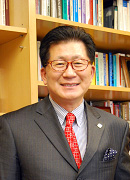
Dean of School and Chair Professor
School of Hotel & Tourism Management
The Hong Kong Polytechnic University
BIOGRAPHY
Professor Kaye Chon
A former hotel manager and tourism industry consultant, Professor Kaye Chon (Ph.D., CHE, FIH) is Dean and Chair Professor of the School of Hotel and Tourism Management at The Hong Kong Polytechnic University. Prior to being appointed as Dean, Dean Chon has assumed the roles of Director and Chair Professor of the School of Hotel and Tourism Management since year 2000.
Under Dean Chon's leadership, the School has arisen as one of the world's leading institutions in hospitality and tourism management. In 2009, the School was ranked no. 2 in the global ranking of hospitality and tourism schools based on research and scholarship, according to a study published in the Journal of Hospitality and Tourism Research.
Dean Chon was previously Professor and Director of Research and Director of Tourism Industry Institute at the University of Houston's Conrad N. Hilton College in the United States.
He is the past Chairman of the International Society of Travel and Tourism Educators and currently Chairman of Pacific Asia Travel Association Education and Training Committee. Dean Chon is honoured by the United Nations World Tourism Organisation (UNWTO) with the prestigious UNWTO Ulysses Prize 2011.
He has been listed in Who's Who In The World.
Industry and University Partnership
ABSTRACT
Industry and University Partnership
Experiential learning is an important pedagogy in a field like hotel and tourism management studies which are closely related to industry practices. The School of Hotel & Tourism Management (SHTM) at the Hong Kong Polytechnic University was able to implement successful industry partnership programs in several unique ways.
First, the School has successfully launched the "Professor For A Day" program with a great amount of success. Prominent managers from the industry are invited to spend a day in the School. They have lunch with a group of invited staff and students, talk with students individually, and give a lecture to students and staff, so they can share with students the current issues and trends in the industry and also have a chance to motivate and inspire the students. Upon completion of the visit, they are presented with a certificate of participation as Professor For a Day, which many of them hang in their offices.
Second, the School has implemented an industry mentorship program. This scheme allows students the chance to receive expert guidance and advice from external mentors. The mentors include senior alumni and industry executives. The mentors meet with their mentees on a one-to-one basis to have lunch and a chat, and to give them some career advice.
Third, several industry relevant subjects are taught entirely in an experiential learning environment. For example, a Restaurant Management subject would involve the students to learn the entire process to plan and price the menu, prepare the food, serve the food and fully responsible for profit and loss of the restaurant for the day. A meetings and conventions management class would involve students to organize professional conferences which are often organized by the School, wherein a class of approximately 30 students would be fully responsible for planning, organizing and executing a professional conference. As the latest development of the School, a teaching and research hotel "Hotel ICON" has been developed and started operation in the second quarter of 2011.
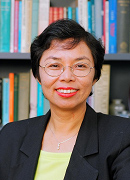
Associate Professor
Department of Applied Social Studies
City University of Hong Kong
BIOGRAPHY
Dr. Alice Ming Lin Chong
PhD. (HKU), M.Sc.(Econ.)(UWales), B.S.Sc. (CUHK), PGD (E.Mgt) (HKCSS & CUHK), P.Mgr. (Canada), R.S.W. (HK).
Dr. CHONG, Ming-Lin Alice is the Associate Professor of the Department of Applied Social Studies, College of Liberal Arts and Social Sciences, City University of Hong Kong. She has been awarded her PhD. from the Department of Social Work and Social Administration, University of Hong Kong. Her areas of teaching are counseling, social work and human service management. Her research interests focus mainly on social gerontology (e.g. long term care, psychotherapy, end of life issues), as well as teaching and learning in higher education. Her publications appear in many academic journals, such as Ageing & Society, Social Work in Health Care, Death Studies, Palliative Medicine, Biological Psychology, among others.
Dr. Chong has established very strong professional connection with the community and is currently serving on the management board of several non-government organizations. She is appointed by the Hong Kong SAR Government to a few high-level governmental committees, such as the Elderly Commission which gives advice to the government on policy and services for older people; and to the Community Investment & Inclusion Fund Committee which provides seed money for the promotion of social capital in Hong Kong.
Enhancing First Year Transition through a Student-centred, Non-credit Bearing Co-curricular Program
ABSTRACT
Enhancing First Year Transition through a Student-centred, Non-credit Bearing Co-curricular Program
Higher education in Hong Kong is faced with high graduation rate but low motivation in learning, which is contrary to what happens in the West. To enhance first year students' learning motivation and to facilitate their adjustment to university life, a student-centred, non-credit bearing co-curricular program named "Project X for Learning Excellence" (Project X) has been specially designed and implemented since 2008/09 by the Department of Applied Social Studies of the City University of Hong Kong. The following experiential learning activities were organized: (1) small group program-specific learning communities to foster social support, open exchange and self-reflection; (2) academic skills training workshops supported by small group reflection and discussion; (3) student advising through training on goal-setting and individual/group consultation; (4) student-initiated, discovery-oriented community awareness projects (e.g. 3-3-4 project with a secondary school, equal opportunity project etc.) to connect classroom learning with community issues. Since students learn better through peers than teachers, a series of training, support and recognition was provided to student mentors to enhance their generic skills (e.g. management of task/self/others) so that they could be peer tutors. Longitudinal study found participation in Project-X activities positively associated with CGPAs and psycho-educational competence including self-efficiency, social development and leadership.
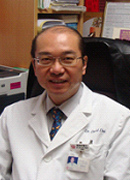
Consultant Geriatrician
Prince of Wales Hospital
Honorary Secretary
Hong Kong Alzheimer's Disease Association
BIOGRAPHY
Dr. David Lok Kwan Dai
PhD. (HKU), M.Sc.(Econ.)(UWales), B.S.Sc. (CUHK), PGD (E.Mgt) (HKCSS & CUHK), P.Mgr. (Canada), R.S.W. (HK).
During his 30-year career in the medical profession, Dr Dai has specialised in geriatric, rehabilitation and pulmonary medicine. He has been the Consultant Geriatrician in the Department of Medicine at Prince of Wales Hospital, Hong Kong, since 2002, and he holds honorary teaching positions at the Chinese University of Hong Kong and Hong Kong University. In addition, Dr Dai is a member of several Hong Kong Government Labour and Welfare Bureau steering committees and working groups studying issues relating to community care and residential care services for the elderly. He is a member of several Social Welfare Department committees and panels, and of the Guardianship Board's Panel. Besides, he serves as the Hon Secretary and Coordinator of the Education and Publication Committee of the Hong Kong Alzheimer's Disease Association, and he is its Immediate Past President. Dr Dai believes that an ordinary person can contribute to his fellow human through service, courage and passion.
Capacity Building in Care for Demented Persons
ABSTRACT
Capacity Building in Care for Demented Persons
Capacity building is a long-term continual process of development that involves all stakeholders. In dementia care, this will engage persons on the individual, institutional and societal levels. Dementia is prevalent among our aging population; 10% of persons aged above 75yrs and 30% of aged above 85 yrs. The approach to dementia care has evolved from a purely medical model, to include social support; educational and protective strategies. The “Ripple Strategy” for capacity building places the family physician at the centre. A local survey reveals only 27% of doctors are confident in the treatment of dementia. Daycare fills the next ring, where training of carers and early detection can take place. Eventually, a person with dementia will be admitted to an old age home. 50% of clients in private residential homes suffer from cognitive impairment. The residential home can provide an ideal facility for educational activities for healthcare workers. The person centered care approach has been proven to be as effective as dementia care mapping in managing BPSD. The broader framework should include family carers to build up a relationship centered care model. The nurse can play a central role in the advocacy of person and relationship centered care across settings. Home care may be limited by increasing disability in the advancing dementia process. An integrated homecare, daycare programme within a residential home may make transition of care setting less disruptive for the person with dementia and family members. The US is looking at the nursing home as a potential market. The UK National Dementia Strategy also considers stimulating the market to achieve sustainability of dementia care programmes. Lying in the outmost rim of the “Ripple” is raising public awareness, which includes rights and empowerment, and enhancing skills and knowledge in both health and social care. The family is the best place to start early detection of symptoms in an elder member. A school project demonstrated feasibility and has been repeated in Macau. Finally, Hong Kong can be play the role of a dementia hub in the Pearl River Delta to provide a model quality care system for other parts of China, which can take part in solving the issues of the aging population in the region. The 12-5 has clearly laid down homecare to be the basis of elder care, to be supported by community resources; while institutional care becomes the backup. Training of healthcare providers is the crux, and Hong Kong can play a role in this aspect. The next level of care will be protective. This will engage preventive approaches to delay the onset of dementia in the life course of an individual. On the societal level, such will be legal and ethical instruments, to include the will, advance medical directive, lasting power of attorney and guardianship.
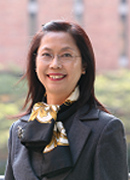
Director of Student Affairs
The Hong Kong Polytechnic University
BIOGRAPHY
Mrs. Dorinda Fung
Dorinda Fung is the Director of Student Affairs at Hong Kong Polytechnic University. Mrs. Fung has a passion of providing opportunities to help students' holistic development.
Aligning with HKPU's mission of being an application-oriented university, Mrs Fung has been exploring for different internship platforms and models to connect students with the real world where they can experiment on applying what they have learned inside the classroom. Meanwhile it is HKPU's institutional policy to make work-integrated –education mandatory. All undergraduates will have to undergo some internship experience before graduation. Mrs. Fung and her team have been instrumental to the successful realization of this institutional commitment.
Mrs. Fung is also keen to add cultural exposure to work experience and thus she works diligently to expand students' internship horizons beyond Hong Kong. Since the mid nineties, HKPU has been enabling over 7,000 HKPU students to have internship experience offshore, to over 30 different countries and over 25 cities in the Chinese mainland. From 2004 to 2006, with a generous donation of $16M from The Hong Kong Jockey Club Charities Trust, Mrs. Fung was the Chairman of a joint-institution initiative that facilitated 1,000 students from the 8 local tertiary institutions to participate in offshore placements.
Dorinda has a background as an educator, and in various fields of psychology. She has been the Director of Student Affairs at HKPU since 2002. She provides leadership to 120 full-time staff and her responsibilities include overseeing psychological and careers counselling, personal and professional skills development, financial support, physical education, hall residences, scholarships and amenities.
Connecting students to the Real World : the PolyU Experience
ABSTRACT
Connecting students to the Real World : the PolyU Experience
With the mission of providing high quality application-oriented education, The Hong Kong Polytechnic University offers a wide range of courses which directly meets industrial, commercial and community needs. It is a prime aim of the University to equip students not only with professional competency but also the ability of independent thinking, good communication skills and a global outlook. In view of this, the university-wide “Work-Integrated Education” (WIE) was launched as a mandatory graduation requirement for all full-time undergraduate students starting from the intake of 2005-06. It aims to help students to become ‘all-round students with professional competence’ and to produce ‘preferred graduates’.
Work-Integrated Education in PolyU refers to “structured and measurable work-based learning experiences which take place in an organizational context relevant to a student’s future profession, or the development of generic skills that will be valuable in that profession. It offers students the opportunity to learn to connect classroom theory with practical workplace applications through on-the-job work placements. Through the implementation of WIE, it is wished to reaffirm the positioning of PolyU as a University offering academic programmes in a professional context and to strengthen the competitive edge of the University’s professional-based programmes with a view to attracting more quality students and to enhancing the employability of students.
We have implemented the WIE for 5 years already and the learning curve has been steep for both the faculty and students.
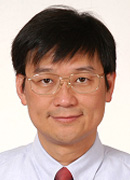
Chair Professor
Department of Electrical and Electronic Engineering
The University of Hong Kong
BIOGRAPHY
Professor Ron S.Y. Hui
Ron Hui received his Ph.D at Imperial College London in 1987. He has previously held academic positions at the University of Nottingham, the University of Sydney and City University of Hong Kong. Presently, he is a Chair Professor at the Departments of Electrical & Electronic Engineering at the University of Hong Kong and Imperial College London. He has published over 140 refereed journal papers in Power Electronics and Industrial Electronics. Over 50 of his patents have been adopted by industry worldwide. His inventions underpin key dimensions of the world's first international Wireless Power Standard "Qi", which was launched in 2010 by the Wireless Power Consortium, now comprising over 80 international companies. He is a Fellow of the IEEE (USA) and IET (UK). He received the Earth Champion Award in 2008. In 2010, he received the IET Crompton Medal, the IEEE Rudolf Chope R&D Award and was elected to the Fellowship of the Australian Academy of Technological Sciences & Engineering.
Drastic Reduction of Electronic Waste through Novel Sustainable Technologies
ABSTRACT
Drastic Reduction of Electronic Waste through Novel Sustainable Technologies
Modern portable electronic products such as mobile phones and iPods have transformed human society in communication and entertainment. However, these products and their chargers also give rise to increasing electronic waste problems. Similarly, electronic ballasts and compact fluorescent lamps have been promoted by many governments which emphasize only energy saving without realizing the serious consequences of the associated electronic waste and highly toxic chemicals. In this talk, the author will address the needs for new international criteria for "Sustainable Technologies" and explain how new technologies in wireless charging and sustainable lighting areas can play significant roles in drastically reducing electronic waste and preserving the environment. Novel wireless charging pad systems for portable consumer electronics and recyclable ultra-low-loss ballasts will be introduced as examples that meet the criteria for sustainability, including not only energy saving but also long product lifetime and recyclability.
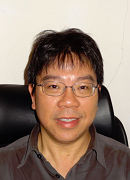
Professor
School of Life Science
The Chinese University of Hong Kong
BIOGRAPHY
Professor Siu Kai Kong
Dr. SK Kong received his higher education in Hong Kong and the UK. He is now a professor in the Biochemistry Programme of The School of Life Sciences at The Chinese University of Hong Kong (CUHK). His research interests are to study the cell death process in erythrocytes and cancer cells. SK Kong is also interested in developing biosensors to detect bio-molecules using fluorescence and novel techniques. Apart from teaching and doing scientific research, Dr. Kong also participates in many science-promoting activities and arranges many workshops for secondary school students. Currently, he is a fellow of the Center for Promoting Science Education in the Faculty of Science at the CUHK.
Teaching Support for the 3+3+4 Biology in Hong Kong Secondary Schools
ABSTRACT
Teaching Support for the 3+3+4 Biology in Hong Kong Secondary Schools
Watson and Crick discovered the structure of DNA in 1953. Since then, molecular biology has been developed rapidly and changed our lives in many ways. Another important milestone in biotechnology was the invention of Polymerase Chain Reaction (PCR) by Kary Mullis in 1983 to amplify DNA by chemical reactions. Now, these topics become part of the new senior secondary biology curriculum in Hong Kong. Under this new 334 curriculum, biology teachers in the local secondary schools face two challenges to provide hands-on teaching and learning activities – the lack of hardware and reagent kits supplied at an affordable price. In the light of this, with the support from the Knowledge Transfer Project Fund from CUHK, our team developed some teaching materials to help our students to learn these new technologies better. With the input from secondary school students after running several workshops, we learned how to improve the teaching and learning process, quality of reagent kits and utility of the hardware for PCR. With some more modifications, it is expected that these products will be available in the market at a reasonable price in the near future.
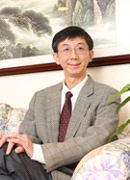
Professor
Department of Medicine & Therapeutics
Co-Director
CUHK Jockey Club Centre for Osteoporosis Care and Control
Deputy Director/Professor
S H Ho Centre for Gerontology and Geriatrics
The Chinese University of Hong Kong
BIOGRAPHY
Professor Timothy Chi Yui Kwok
Professor Timothy Kwok had undergraduate medical education and postgraduate training in Geriatric Medicine in the United Kingdom. He joined the Department of Medicine & Therapeutics in the Chinese University of Hong Kong in 1994, and became professor in 2006. He has been director of the Hong Kong Jockey Club Centre for Positive Ageing, a comprehensive care centre for people with dementia, since 2004. He is council member of the Hong Kong Geriatrics Society and President of the Hong Kong osteoporosis foundation. His research interests include dementia, nutrition in old age, osteoporosis and health service models.
Innovations in Models of Care for Older People with Dementia
ABSTRACT
Innovations in Models of Care for Older People with Dementia
Dementia is a major cause of disability and dependency in old age. While there is as yet no effective remedy or cure for this common condition in old age, there is evidence that psychosocial interventions may slow the cognitive decline in the demented people and relieve the caregiver burden. Cognitive training may also play an important role in prevention of dementia. The implementation of non-pharmacological interventions may therefore have a major impact in reducing the burden of dementia in Hong Kong.
A locally designed cognitive training programme for the non-demented people is effective in improving reasoning and memory in the less-educated. This is important as most older people in Hong Kong have low education level which is a risk factor of dementia. Similarly, an eight-week calligraphy programme was shown to improve orientation and attention in old age home residents.
Cognitive stimulating activities have been shown in randomized trials to be effective in preserving cognitive function in the demented people. A prospective study of demented people attending a dementia specific day care centre in Hong Kong showed stabilization of cognitive decline and significant reduction in family caregiver stress.
Most family caregivers of demented people are under psychological stress because of the constant need for supervision and communication problems. A local psycho-educational programme delivered by social workers via the telephone has been shown to reduce caregiver stress. A similar counselling programme delivered via the internet is being developed.
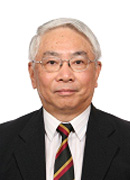
Associate Dean (Special & Mainland Affairs)
Faculty of Engineering
Honorary Professor
Department of Civil Engineering
The University of Hong Kong
BIOGRAPHY
Professor Peter K. K. Lee
Professor Peter K K Lee is currently the Associate Dean in the Faculty of Engineering and an Honorary Professor in the Department of Civil Engineering at The University of Hong Kong. After a few years working in the industry in the United Kingdom, he returned to join the University in 1970 and has been involved with teaching and research activities ever since. Before appointment of the Faculty position, he had been the Head of the Department of Civil Engineering for over 7 years and implemented project-based-learning design courses hand in hand with traditional courses on fundamental engineering principles.
Outside the campus, Professor Lee has been an active member of the engineering community and has established a strong connection with the profession. During his tenure at the university, he emphasized the importance of communication in engineering. With the support from senior practicing engineers as joint-supervisors, he has introduced successfully credit-bearing practical design courses with small groups of students. Summer intern in the industry is also a core component in the curriculum. Through these arrangements, students are able to experience for themselves the application of knowledge taught in the classroom in the real life scenario and hence enhancing their interests in studying engineering.
An Experiential Learning Experience in Engineering – the Mingde Projects
ABSTRACT
An Experiential Learning Experience in Engineering – the Mingde Projects
By combining learning and practice, the Mingde Projects gives Civil Engineering students the opportunity to volunteer on community-based projects and contribute their skills to society. Mingde, in Chinese, appears in the motto of The University of Hong Kong carrying the meaning of "understanding the human virtue". Since it began in 2004, the Mingde Projects has united nearly 350 students and teachers, together with some 70 alumni, in a common cause. In the end, the project is not only about volunteering, it is about training a new generation who takes up the duties of society.
The first project began in 2004 when students in Civil Engineering were invited by a donor to design and supervise the construction of Mingde Building, a primary school in the mountainous area in Dalang Village, Rongshui Country in Guangxi Province, China. On completion of the Building, students working on this project learned an unexpected lesson - walls alone do not make a school. To fully realize the dream of a new school for the children, students raised funds among themselves for new furniture, books and equipment to make it complete.
This was followed in 2006 by the Gewu Building, a dormitory for 600 vocational training students also in the Rongshui County. After primary education, most boys and girls in their early teens undertake vocational training before embarking on a career in the society. A dormitory at the training school can help to save everyday long travelling hours of these teenagers coming from scattering villages far away.
The most recent project, the Zhengdong Jie Kindergarten in Chongzhou, is near completion. The original building collapsed during a severe earthquake in May, 2008. Due to site constraints and stringent earthquake resistant requirements, this is a much more complicated project. We were fortunate to have unfailing supports from many professional alumni contributing their valuable time and effort, voluntarily, to guide and supervise the work of students. Over 200 students have been involved in this project. During the monthly supervision visits to the construction site, opportunities have been arranged for students to witness the ruins caused by earthquake as well as various earthquake resistant systems proposed for different new structures.
Through Mingde Projects, the Department of Civil Engineering has been successful in providing students a platform to experience the practical application of knowledge taught in the classroom. Also through participation in real projects, students understand the need of the society; learn how to communicate with the society and to contribute to the society with their own effort and expertise. This experience will fortify their confidence and interests in the programme they have chosen to study at the university as well as to give them a sense of satisfaction when caring the need of the society around them.
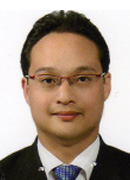
Assistant Professor
Department of Asian and International Studies
City University of Hong Kong
BIOGRAPHY
Dr. Taedong Lee
Taedong Lee is an assistant professor in the Department of Asian and International Studies in City University of Hong Kong. Lee has worked on sub-national environmental governance with a variety of topics and methods. In his dissertation, "Global Cities and Climate Change," he examines conditions entailed in cities' participation in international climate change networks, collaboration patterns in a global network, and variations in city-level climate change policies with multilevel modeling, social network analysis and case studies of five cities in the U.S. and Korea. His studies including, "Local Climate Policy and Green Building,""Global Cities and Climate Change Networks," and "Act Locally Link Globally: Translocal Collaboration in C40 Climate Leadership Group" are under reviewed in top political science and public policy journals. He also develops a book project to provide climate change policy guideline for mayors, public officials and citizens. Main strengths of Dr. Lee lie in collecting and analyzing quantitative data with modeling and visualizing skills including the GIS and multilevel analysis. His articles have appeared in journals including Voluntas and Nonprofit and Voluntary Sector Quarterly.
Green Building as a Solution for Better Life in Hong Kong
ABSTRACT
Green Building as a Solution for Better Life in Hong Kong
Sustainably built and energy efficient buildings are an international phenomenon that is driven by policy and market forces. These "green buildings" have quickly become an important component of the modern global city's skyline and business recruitment materials. My speech talks about the role of policy and business community in fostering green building using findings from analyses of 600 US cities. Hong Kong government and its Environmental Protection Department (EPD) set an ambitious GHG emission reduction target by conducting measures for maximizing energy efficiency. In order to maximize energy efficiency, the EPD proposed promotion of building energy efficiency and building environmental management system. Given that 67% of Hong Kong's total GHG emissions come from electricity generation and 90% of electricity consumption is related to buildings, improving building energy efficiency is imperative to save energy, costs and the environment. In this regard, it is crucial to assess how other cities in the US integrate green building policy into climate change and energy policy. Drawing lessons from US city level policy, I argue that political commitment and "policy by doing" are key factors driving the proliferation of green buildings.
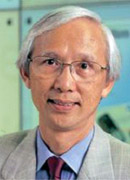
Associate Professor
Department of Applied Social Studies
City University of Hong Kong
BIOGRAPHY
Dr. Tak-yan Lee
Dr. Tak-yan LEE is an Associate Professor in the Department of Applied Social Studies at the City University of Hong Kong. His primary teaching and research interests are in social work, group work, positive youth development, and practice teaching and learning. He is currently one of the co-principal investigators of a large scale applied research study on the development and evaluation of a positive youth development program titled "Positive Adolescent Training through Holistic Social Programmes" (Project P.A.T.H.S., since 2005) for junior secondary school students in Hong Kong. His recent research covers adolescent prostitution, positive youth development, parent-child communication, parental control, child and adolescent resilience, youth empowerment, runaway adolescents, youth and the cyber world, as well as social work practice teaching and learning. He has co-edited 5 books, 36 book chapters, 11 manuals and handbooks, published 8 teaching DVDs, and 56 articles in professional and international refereed journals.
Towards Enhancement of Professional Practicum Teaching and Learning: A Conceptual Model
ABSTRACT
Towards Enhancement of Professional Practicum Teaching and Learning: A Conceptual Model
With no exception, all universities in Hong Kong will provide a new curriculum that emphasizes general education and allows wider choices from different disciplines to nurture an academic curiosity that is as deep as it is broad under the four-year normative curriculum in 2012. On one hand, universities aim to provide a holistic learning experience to produce well-informed citizens as well as leaders, and to prepare well-trained professionals with very practical knowledge to solve today's problems. On the other, a capstone course which will encourage students to engage in research is commonly found in most undergraduate programmes. Some universities aim to create a culture of inquiry, innovation, and discovery while all emphasize that the curriculum will cultivate critical thinking and a concern for society, particularly through service learning.
Economic and social environments are changing at an ever increasing pace in modern cities around the world. It is particularly so in Hong Kong. One of the challenges facing higher education in Hong Kong is that most graduates are being expected to demonstrate different types of competence in handling complicated occupation-related tasks. In response to such a drive, universities provide internship requiring integration of knowledge from different disciplines exposing them to knowledge and skills required for the job. This trend, together with the burgeoning evidence based practice movement in helping professions, highlight the importance of thinking carefully about what knowledge is, how it can be gained, how it should be used, and what the implications of different views are for clients, professionals, researchers, and taxpayers (Gambrill, 2005).
Against this background, this paper focuses on practicum teaching and learning for the helping professions and a conceptual framework on professional practicum teaching and learning is presented. The model integrates the perspectives from the university, the profession, the practicum agency, the student, and the practice teacher. Crucial issues will be highlighted and discussed.
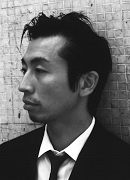
Assistant Professor
Department of Architecture
The University of Hong Kong
BIOGRAPHY
Professor John C.H. Lin
John Lin is an architect based in Hong Kong and currently an Assistant Professor at The University of Hong Kong. He was born in Taiwan and immigrated to the US. After studying in both the Art and Engineering programs at The Cooper Union in New York City, he received a professional degree in Architecture in 2002. His current research concerns the process of urbanization in rural China with a focus on the sustainable development of Chinese villages. His current projects include the design of several school buildings, a village community center, a hospital and a sustainable house prototype in China. Located in rural areas of Shaanxi, Jiangxi, Guizhou, Hainan, Hunan and Guangdong provinces they integrate local and traditional construction practices with contemporary sustainable technologies. The projects coordinate between Chinese and Hong Kong universities, education bureaus, ministries of construction, and local governments along with NGO's and charity organizations. His research and work has been published widely and exhibited in various places including the Architecture Park (Kolonihaven) at the Louisiana Museum of Modern Art in Copenhagen 2004, the Hong Kong & Shenzhen Bi-City Biennale of Architecture and Urbanism 2007 and 2009, the Beijing Architecture Biennale 2008 and at the Venice Biennale of Architecture 2008 and 2010. He has received two AR Awards for Emerging Architecture in 2009 and 2010 for his Qinmo Village School and Taiping Bridge Renovation projects. He has taught previously at the Royal Danish Academy of Fine Arts, School of Architecture and The Chinese University of Hong Kong. He is the 2010 recipient of the Outstanding Teaching Award at The University of Hong Kong.
A Different Role: Teaching in the Real World
ABSTRACT
A Different Role: Teaching in the Real World
In reflecting on my role as a teacher over the past 9 years, I began to compare myself to the teachers which had the biggest impact upon my own education. The most memorable are those which did not necessarily hold all the right answers. These teachers formulated curriculum around real-life problems and put us into situations where there were no existing answers. I remember distinctly the excitement in discovering unexplored frontiers. In that mome¬nt, I acquired the desire for further knowledge, and the desire to become an architect.
As teachers we cover only a fraction of a person's entire professional career, it is far more important to offer the tools and instill the desire for pursuing a lifetime of learning. Engagement in the world at large is such a bridge. Though the classroom is essential as a place to generate ideas, ultimately ideas must be tested in the complexity of the real world. The ability to engage in unprecedented and complex problems is the difference between simply possessing knowledge and lifelong learning. This fundamentally changes the student-teacher relationship, which may be hierarchical in the classroom, but contemporaneous in the real world; the teacher is an instigator, a critic, a leader, a fellow collaborator and him/herself equally a student. This is why I believe that the most important quality for being a good teacher is the ability to learn from, and in partnership with students.
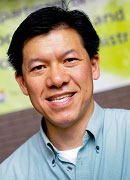
Associate Professor
Department of Social Work and Social Administration
Director
Sau Po Center on Ageing
The University of Hong Kong
BIOGRAPHY
Professor Terry Y.S. Lum
Dr. Terry Lum (林一星) is an Associate Professor at the Department of Social Work and School Administration and the Director of the Sau Po Center on Aging at the University of Hong Kong there. Before joining the University of Hong Kong, he was an Associate Professor at the School of Social Work at the University of Minnesota. Dr. Lum earned his Bachelor's degree in Economics and his Master's degree in Social Work from the University of Hong Kong. He earned his Ph.D. degree in social work from the Washington University in St. Louis, with special focus on gerontological social work and policy research. Dr. Lum is also an elected Fellow of the Gerontological Society of America.
Evidence Based Elder Care - How Research Contributes to Improve the Quality of Care and Quality of Life of Older People in Long Term Care System
ABSTRACT
Evidence Based Elder Care - How Research Contributes to Improve the Quality of Care and Quality of Life of Older People in Long Term Care System
The number of institutionalized elderly persons has been rapidly increasing in Hong Kong. In 2009, 58,300 elderly persons, or 5.2% of all elderly in Hong Kong, were institutionalized. Residential care for frail elderly people has grown rapidly since the 1980s, and concerns over the living conditions of residents and quality-of-care in these homes emerged at much the same time. Although the Hong Kong Government has tried to improve the quality of nursing home care through a licensing process, with the expectation that doing so will eventually improve residents' quality-of-life (QOL), very little has been done to systematically monitor and improve the QOL of older nursing home residents. Using the Green House Nursing Home Project in the US as an example, I will present how a small but well-designed research project that focused on QOL of older people, has revolutionized the nursing home care in the United States.
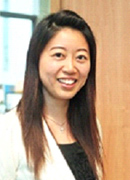
Assistant Director
Office of Service-Learning
Lingnan University
BIOGRAPHY
Dr. Carol Hok Ka Ma
Carol MA Hok Ka is an Assistant Director in the Office of Service-Learning (OSL), Lingnan University. She has a particular passion for the promotion of intergenerational programmes and is an active participant in both elderly services and youth services. She has received many awards for community services and academic achievements from Lingnan University as well as the Government of the Hong Kong Special Administrative Region. She was awarded a W.T Chan Fellowship to study and practice service-learning in the University of California at Los Angeles and was also awarded a Lingnan Foundation Scholarship to do a research internship at the National Primary Health Care Centre, University of Manchester.
She is currently a member of Independent Police Complaints Council (IPCC); a member of Environmental Campaign Committee (ECC), Environmental Protection Department, a member of Committee on the Promotion of Civic Education (CPCE); a member of Youth Programme Co-ordinating Committee (YPCC), Commission on Youth (COY);a co-opted member of Working Group on International Exchanges and Conferences, Commission on Youth; a member of the Tsuen Wan District Summer Youth Programme Co-ordinating Committee, and the treasurer of Tuen Mun Healthy City Association Limited.
Digital Classroom Project: Service-Learning and Information and Communication Technology's Impacts on Student Learning in Hong Kong
ABSTRACT
Digital Classroom Project: Service-Learning and Information and Communication Technology's Impacts on Student Learning in Hong Kong
This paper describes a collaborative service-learning model between a University and a primary school in Hong Kong that develops a hybrid model of university-community partnerships in service-learning and internet-based learning. Echoing the trend of advancing technology in education and the need for holistic education, the Digital Classroom Project (DCP) integrates the pedagogy of Service-Learning (S-L) and Information and Communication Technology (ICT). With the aim of creating a learning environment unconstrained by time and location, the DCP encourages learners to develop independent learning skills and share knowledge with a diverse and global audience. Primary school students participated in guided reading and group discussions led by university students utilizing both online and face-to-face activities. A comprehensive evaluation of effectiveness was implemented that examines eight different areas. This paper reports this program evaluation, which found overall positive impacts on students' learning.
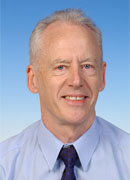
Acting Head/ Professor
Department of Chemical & Biomolecular Engineering
The Hong Kong University of Science and Technology
BIOGRAPHY
Professor Gordon Mckay
Prof. Gordon McKay is the Acting Head of the Department of Chemical and Biomolecular Engineering at HKUST. Prof. McKay received his PhD from Bradford University in 1970 in Combustion Kinetics. In 1970, he was appointed Lecturer II in Chemical Engineering at Queens University, Belfast, Senior Lecturer in 1980 and Reader in 1985. During the years 1984-85, Prof. McKay was appointed as Professor and EC Project Manager to establish Faculty of Engineering at University of Jordan.
Prof. McKay served as an owner and CEO of Consultant Process Engineering and Management Systems Ltd. (1985-95), Senior Process Specialist, Project Management Ltd. (Foster Wheeler Ireland) and Project Manager of 200 HAZOPs, 20 EIAs, 5 IPCLs, 50 Environmental Audits & 100 Process Plant Designs.
Prof. McKay's research focuses on developing a fundamental understanding of the design and optimization of processes and products for environmental applications, waste minimization and energy recovery. Prof. McKay's current research activities include wastewater treatment for dyes and metals using adsorption, ion exchange and ozonation, biopolymers from crab and prawn shells, process design, dioxin removal, MSW processing and production of new adsorbents.
Waste to Energy
ABSTRACT
Waste to Energy
Worldwide human society produces vast amounts of wastes from our own domestic and social activities, industrial, commercial and constructional activities. Our own community in Hong Kong of just under seven million people produce between nine to ten thousand tonnes per day of municipal solid waste and around tow thousand tonnes per day of sewage sludge. At present almost all of this goes to our three landfill sites a very valuable resource on Hong Kong which could be used for other purposes.
Furthermore, it has been projected that the current capacity of these three sites will be exhausted in the next six to seven years. The proposed extension of one of these sites into a Country Park area has already caused a significant controversy in Legco.
What can we do? There are several pilot projects using different technologies under trial in Hong Kong but most are several years away from a full scale operating waste processing plant. A brief mention of these will be made in the presentation.
However, Hong Kong Government Departments, like most countries around the world in a similar situation, are proposing to alleviate the waste problem initially by the introduction of one or two large scale waste volume reduction processing plants using incineration. This presentation will discuss the advantages and disadvantages, particularly in terms of the emissions, of waste reduction by thermal treatment and show some photographs of some incinerators in other countries. You will see some results from a pilot plant constructed and operated in Hong Kong by Chemical Engineers from HKUST and engineers fron Green Island Cement Company Limited.
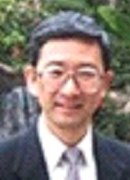
Chair Professor of Social Psychology
Department of Applied Social Studies
City University of Hong Kong
BIOGRAPHY
Professor Sik Hung Ng
Sik Hung Ng, PhD (Bristol) and FRS (New Zealand), is Chair Professor of Social Psychology at the City University of Hong Kong. He co-founded the New Zealand Institute for Research on Ageing (1999), and served as the President of the Asian Association of Social Psychology (2007-2009) and a member of the Provisional Minimum Wage Commission of the Hong Kong SAR Government (2009-2010). He has published 5 books and over 90 international journal papers. His most recent book, co-edited with Stephen Cheung Yan-leung and Brahm Prakash, is Social Capital in Hong Kong: Connectivities and Social Enterprise.
Transfer of Ageing Knowledge and Myths
ABSTRACT
Transfer of Ageing Knowledge and Myths
"Ageing" is a socially constructed representation of apparent neural-biological and psycho-social changes in advanced age. The construction is open to the influence of not only science, but also folklores, religions, the fear of death, and the politics of "Who should care for the aged amongst us?" Knowledge of what ageing is and what it should be is highly contestable and often mixed with myths. Although ageing research has been relatively successful in "debunking" some of the older myths, it has the potential of creating inadvertently new myths of its own. The present talk addresses some of the modern myths and the need for a broader and more critical approach to the transfer of ageing knowledge.
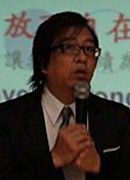
Associate Professor
Department of Religion & Philosophy
Hong Kong Baptist University
BIOGRAPHY
Dr. William Ng
Dr. William Yau Nang Ng is currently an Associate Professor of the Department of Religion and Philosophy at the Hong Kong Baptist University. He holds a PhD in comparative religious study from University of Toronto and is an expert in Chinese religions. He teaches courses on Buddhism, Matters of Life and Death and Socio-cultural Issues in Hong Kong Today. He has written four books, edited a series on comparative study and co-translated two books from English into Chinese. Dr. Ng published many articles on Chinese philosophy, religion, film study and cultural studies and has contributed entries for different Encyclopedias. He has been taking part in the Exchange Project and Research Project of the Knowledge Transfer Office at the Hong Kong Baptist University since 2010.
Heart Meets Heat-- Exchange and Mutual Enrichment in Creativity and Cultural Sensitivity in the International Writers Workshop
ABSTRACT
Heart Meets Heat-- Exchange and Mutual Enrichment in Creativity and Cultural Sensitivity in the International Writers Workshop
People cherish different ideals of happiness and have search for this well-spring of their life in different places. Many look for it in the hoarding of riches, some in the pride of power, and others in the appreciation of art and literature. Unlike material possession, great literature opens up new visions, deepens self-understanding, promotes creativity and enhances the meeting with great mind and soul. To get in touch with first rate creative writers around the world can enhance the understanding of different visions and inspirations. Thus, it is important to connect different people and culture and promote exchanges and communication of different literary traditions around the world.
Established in 2004, the International Writers Workshop (IWW) can be seen as a pilot practice of Hong Kong Baptist University in its development towards a creative institute. The IWW supports the exchange and communication of visions, inspirations, literary creativity and cultural sensitivity among famous international writers from different cultures. Throughout these years, around seventy writers from over forty countries have visited IWW, bringing to Hong Kong their visions and inspirations. This paper seeks to capture what have been done in IWW and to explain how IWW, by means of literature, serves humanity in connecting people and cultures and promoting mutual understanding. In order to help to explain the exchange and communicative function of IWW, a three-dimension schema has been developed to depict the different level of connectivity reflected the work and design of IWW.
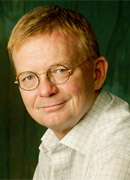
Scholarly Communications Team Leader
University Libraries
The University of Hong Kong
BIOGRAPHY
Mr. David T. Palmer
David Palmer is the Scholarly Communications Team Leader in the University Libraries, developing and managing the institutional repository, "The HKU Scholars Hub", and the many issues of access, repository population, and bibliometrics that surround The Hub. He has worked at The University of Hong Kong Libraries (HKUL) since 1990, as Systems Librarian, Technical Services Support Team Leader, and now as Scholarly Communications Head. He is a founding member of the Hong Kong Open Access Committee, and was instrumental in having HKU become signatory to the Berlin Declaration on Open Access in November 2009. He has lead in many path-breaking projects, such as the first university in Asia to have all of its thesis collection (19,000+) online in fulltext, the first institution worldwide to do an institutional upload of publication data for each researcher into Thomson Reuters' ResearcherID, and the creation of ResearcherPages in The Hub for each of HKU's authors.
Making HKU Research Discoverable & Findable: The HKU Scholars Hub
ABSTRACT
Making HKU Research Discoverable & Findable: The HKU Scholars Hub
Developed and maintained by the University Libraries, the Hub is the institutional repository of The University of Hong Kong (HKU). On top of its regular work to place HKU publications in open access, it has received funding from the HKU Knowledge Exchange Office (KEO) to make HKU research and researchers highly visible on the web, with the aim of increasing all forms of collaboration, internally and externally. The Libraries extracted data from several internal HKU silos and external databases to create author profiles, or "HKU ResearcherPages" for each of the professoriate staff.
These pages bring together in a public mashup, interlinking publication details, patent records, and grant applications, as well as details of community service, postgraduate student supervision, research interests, etc. Bibliometrics provided by Scopus and ResearcherID, as well as Hub generated view counts and download counts, cumulated to the article level, and to the author level, show that this work and these pages have increased visibility, and thus impact. Serendipitously this work has also received the attention and efforts of many HKU researchers, who now interact with Library staff and their ResearcherPages to ensure that their details are complete and shown in the best light. The Hub is therefore one tool by which a new culture and community of Knowledge Exchange is being forged at HKU.
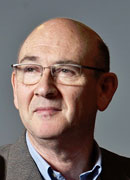
Chair Professor
Dean of School of Creative Media
City University of Hong Kong
BIOGRAPHY
Professor Jeffery Shaw
Professor Jeffrey Shaw is internationally recognized as a leading figure in new media art since the 1960's. In a prolific oeuvre of widely exhibited and critically acclaimed works he has pioneered and set benchmarks for the creative use of creative media in the fields of virtual and augmented reality, immersive visualization environments, navigable cinematic systems and interactive narrative. Shaw was the founding director of the ZKM Institute for Visual Media Karlsruhe (1991-2002), and in 2003 he was awarded an Australian Research Council Federation Fellowship to co-found and direct the UNSW iCinema Centre for Interactive Cinema Research. Since 2009 Shaw is Chair Professor of Media Art and Dean of the School of Creative Media at City University in Hong Kong, as well as Director of the Applied Laboratory for Interactive Visualization and Embodiment. (ALiVE) and the Centre for Applied Computing and Interactive Media (ACIM).
Future Cinema – Creating New Realities
ABSTRACT
Future Cinema – Creating New Realities
While during its infancy the cinema was full of technological innovation and creative diversity, Hollywood has ended up defining its dominant forms of production and narration. But this situation is now changing because of the new digital modalities of cinematic production and presentation, and over the last ten years we have been witnessing a creative renaissance with a whole new range of experiences, from handheld micro-movies and interactive mash-ups, to video games and immersive telepresence in virtual 3D worlds. Professor Shaw's presentation will discuss the convergent multiplicity of these new techniques of cinematic representation and intercommunication, with illustrated examples of ground-breaking artworks that herald the digitally expanded cinema of tomorrow. Shaw will refer in particular to benchmark research he and his associates are currently undertaking at the CityU Applied Laboratory for Interactive Visualization and Embodiment (ALiVE).
In the realm of digital creation, the essential scale-ability of its codes allows the cinematic imaginary to be seamlessly distributed amongst these various technological systems, opening dizzying perspectives of creative interpolation on all levels and in all places. We are witnessing an increasing multiplicity of techniques of representation and inter-communication, and the emergent expressive possibilities that derive from their invention and application. The social vitality of creative research in this area provides a platform for the broader discourse concerning the co-evolutionary challenges for humankind living in a machine culture. This is the driver of a research trajectory that looks beyond the dominant industrial forms of popular media, and pushes the creative and critical boundaries of the cinematic imaginary in ways that can enrich human experience and be of transforming benefit to society.
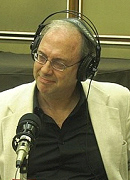
Executive Director
Hong Kong America Center
BIOGRAPHY
Dr. Glenn Shive
Glenn Shive has been Executive Director of the Hong Kong America Center (HKAC) since 2000. The Center is a non-profit consortium of universities in Hong Kong that promotes educational exchange between Hong Kong and the United States, and between China and the United States over the bridge of Hong Kong. The HKAC administers Fulbright exchange activities in Hong Kong and greater China. Shive was himself a senior Fulbright scholar in the Faculty of Education at the Chinese University of Hong Kong in 1998-99 and also served as Director of the Hong Kong office of the Institute of International Education (IIE) from 1988-1991.
Shive received his Ph.D. in Chinese history in 1979 from Temple University in Philadelphia, his home town. Earlier he had studied for a year in each of the Kantonschule of St. Gallen in Switzerland, Oxford University in the UK, the Free University in Berlin, and Taiwan Normal University in Taipei. He also did post-doctoral research on China at the John King Fairbank Center at Harvard University in 1979-1981.
In addition to Hong Kong, Shive has taught at universities and administered exchange programs in greater China, including East China Normal University in Shanghai, Sun Yat sen University in Guangzhou, the Mandarin Center of Taiwan Normal University in Taipei and National Sun Yat Sen University in Kaohsiung, Taiwan. He has lived more than fifteen years in Asia.
In America, Shive held positions as Assistant Dean at the East-West Center in Honolulu, Scholar in Residence with the Fulbright Program at the U.S. State Department in Washington DC, Director of Education Policy Research for The NETWORK, Inc. in Andover Massachusetts, the CEO of the Council of International Programs (CIP) in Washington DC, and the Director of the Board of Governors Bachelors Degree Program, based at Governors State University in Chicago, Illinois.
Shive edited Open and Distance Education in Asia Pacific Region published by the Open University Press of Hong Kong, and North South Scholarly Exchange published by Mansell Press in the UK. He has organized dozens of international conferences and workshops on education policy and innovation, urban design and development, human resource management, and culture, technology and social change in Asia. Shive has produced and narrated several bilingual documentary and educational films on China.
Dr. Shive can be contacted at: glennshive@cuhk.edu.hk or by telephone at the Hong Kong America Center at 852-2609-8749. The HKAC offices are on the campus of the Chinese University of Hong Kong in Shatin.
Designing and Assessing Learning in Transnational Internships
ABSTRACT
Designing and Assessing Learning in Transnational Internships
Internships are becoming more popular with students worldwide. Organizing internships for students across national and cultural boundaries is a new aspect of transnational education (TNE). The HKAC has created summer internships in the US for HK students and in HK for US students. Based on this experience, the presentation will focus on key issues for designing quality experiential learning, and challenges for universities and host organizations in framing internships that produce high-intensity learning, student satisfaction and benefits to the host organizations. Achieving one goal may not entail the others.
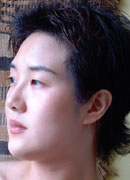
Assistant Professor
Department of Comparative Literature
School of Humanities
The University of Hong Kong
BIOGRAPHY
Mirana May Szeto
Mirana May Szeto did her Ph.D. in Comparative Literature, UCLA and is Assistant Professor in Comparative Literature at the University of Hong Kong. She has published in postcolonial and critical theory journals like Interventions and Concentric, writes on China and Hong Kong cinema and literature, urban cultural and spatial politics, as well as cultural policy and coloniality in volumes like Neoliberalism and Global Cinema: Capital, Culture, and Marxist Critique, Hong Kong Screenscapes: From the New Wave to the Digital Frontiers, Sinophone Studies: A Critical Reader, and has completed a book manuscript on Radical Itch: Critical Theory and Its Discontents in Colonial Cultural Politics. Her current book project isentitled "Decolonizing Neoliberalism: Learning from Hong Kong Cultural Movements." She is also the Arts Education Advisor of the Arts Development Council, Member of the Wan Chai District Council Cultural and Leisure Services Committee (2006-08), Member of the Viva Blue House Board of Directors, Advisor of the Saint James' Settlement Advisory Committee for Community Development Services, Core Member of the People's Panel for West Kowloon, Founding Member of Community Cultural Concern, Member of the Choi Yuen Eco-Community Building Studio, Member of Heritage Watch, Advisor and Co-Founder of Students and Scholars Against Corporate Misbehavior, and an active member of movements in preservation of living heritage and communities.
Working with Community, Government, Professional and Business Stake-holders: Knowledge Exchange in the Living Preservation of the Blue House Heritage Cluster
ABSTRACT
Working with Community, Government, Professional and Business Stake-holders: Knowledge Exchange in the Living Preservation of the Blue House Heritage Cluster
Recently in Hong Kong, persistent preservation movements (e.g. Wedding Card Street, Star Ferry and Queen's Pier) pushed the government to reconfigure its urban development policies to include heritage preservation. How can inter-disciplinary academic research, inter-cultural knowledge and professional know-how assist the affected community, non-government organizations and the government to generate together better policy development and execution and do something Hong Kong people actually like?
The Blue House Cluster Heritage Revitalization Partnership Scheme is the first public-private partnership project of its kind in Hong Kong in which the original grassroots inhabitants are not evicted to give way to heritage preservation and development, but can continue to stay as active participants in the revitalization of their community. Our participatory research, policy making, planning and design have helped in creating a new alternative: a bottom-up, community-led and sustainable "living preservation" model which integrates culture and heritage into development. It can become a beacon for sustainable communities to come and a demonstrative research and educational tool. It preserves not only the architecture and cultural landscape, but also the Hong Kong Tonglau habitual way of life. Its innovative social enterprises and creative financial model are self sustainable while offering at the same time affordable rental homes and services as well as relevant job opportunities for the community. It promotes community participation and generates local knowledge transfer and cultural production. How is this possible?
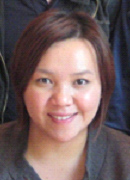
Senior Project Officer
Asia Pacific Institute of Ageing Studies
Lingnan University
BIOGRAPHY
Miss Pui Yee Phoebe Tang
Phoebe is a Senior Project Officer in Asia-Pacific Institute of Ageing Studies, Lingnan University. She has a profound interest in researching issues related to ageing population, its policy development and appraisal and inter-generational programs that promote knowledge and experience exchange between among generations. She is also an active participant in the community and is serving on a few government and NGO committees in Hong Kong in her own capacity, including being (1) member of Commission on Youth (COY), (2) adjudicator of Registration of Persons Tribunal, (3) member of Kwai Tsing District Fight Crime Committee (DFCC); (4) member of Tuen Mun District Coordinating Committee on Elderly Services, Social Welfare Department; (5) executive member of Women Service Association, (6) member of Steering Committee for the TEEN Programme, the Women Foundation
Translating a High-level Policy Directive Into Layman-understood Items for Ageing Policy Evaluation
ABSTRACT
Translating a High-level Policy Directive Into Layman-understood Items for Ageing Policy Evaluation
2012 marked the 10th anniversary of the Madrid International Plan of Action on Ageing (MIPAA). MIPAA is a comprehensive, far-reaching and aspirational document that underscores 3 priority directions, 18 priority issues, 35 objectives and 239 actions that seek to guide policy formulation and implementation towards the specific goal of successful adjustment to an ageing world. The paper reports the development of the Ageing Policy Integrative Appraisal System (APIAS) that translated the essence of MIPAA into operational items that enable policy makers, service providers and service users to monitor, to evaluate and to appraise aging policy in a bottom-up participatory manner. The APIAS has two main components: First, a comprehensive indicator of policy implementation and; Second, a validated instrument for elders' appraisal on ageing services and their quality of life as a result of policy implementation. The APIAS has been the first of its kind, in terms of its design and scale, in Asia Pacific Region to tap on and to move forward the implementation of MIPAA policy directives in local arena from two ends, i.e. Providers' and Receivers'. It is multi-functional, applicable to the whole region/country as well for specific functional areas. The first application in Macao SAR has proven its positive effect and has set a benchmark hereafter upon its periodical review and shall continue to provide scientific evidence for policy-maker and service providers in promoting care and healthy living of elderly people in Macao, and by extension, other countries in the region as the protocol developed will also be of use to its fellow districts or countries in the region.
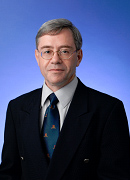
Director
Center for Entrepreneurship; Associate Professor
Department of Finance
The Chinese University of Hong Kong
BIOGRAPHY
Professor Hugh Thomas
Hugh Thomas is the Director of the Center for Entrepreneurship and an associate professor in the Department of Finance at The Chinese University of Hong Kong. He received his bachelor of arts in history from the University of Alberta, postgraduate diplomas in Chinese language from the Beijing Language and Culture University and history from Nanjing University, an MBA from the Chinese University of Hong Kong and a PhD in International Business and Finance from the Stern School of Business, New York University. He has published numerous articles and cases in banking and finance. He participated in founding China's first business school, the National Center for Industrial Science and Technology Management at Dalian in 1980 and subsequently worked in banking and consulting in Hong Kong for seven years. Prior to joining CUHK, he was an associate professor in the Finance Department of McMaster University in Canada.
How Can Student Business Plan Competitions Effectively Stimulate Knowledge Transfer and Entrepreneurship?
ABSTRACT
How Can Student Business Plan Competitions Effectively Stimulate Knowledge Transfer and Entrepreneurship?
The question "How can student business plan competitions effectively stimulate knowledge transfer and entrepreneurship?" is critical to knowledge transfer as practiced in universities in Greater China today. In the history of entrepreneurship education in China, the inauguration of what was to become the China Challenge Cup of Entrepreneurship (the Little Challenge) in Tsinghua University in 1998 is counted as Genesis. Since then, the Chinese Ministry of Education has increasingly come to view entrepreneurship, rather than management science in established firms, as the key to continued economic growth. China today is a world leader in terms of numbers of formal tertiary classes in entrepreneurship, and the business plan competition is core to their curricula. In Hong Kong, the move towards active knowledge transfer as opposed to pure research is part of a global change in education emphasis. New business plan competitions are initiated every year. But business plan competitions in general and the Little Challenge in particular have many problems. Several successful businesses have come out of these competitions but many of the competitions have trained excellent prize winning teams that have no interest in rolling out their ventures. What makes a good business plan competition and how educators can work effectively with entrepreneurs, service providers, investors and students to build effective knowledge transfer is the subject of this session. As director of the CUHK Center for Entrepreneurship Hugh Thomas designed and has run The Chinese University of Hong Kong's Vice Chancellor's Cup of Student Entrepreneurship and has worked with colleagues to design and run the Hong Kong Social Enterprise Challenge, sponsored by the Hong Kong Government's Home Affairs Bureau. The Center has trained teams who have won awards in, among others, Hong Kong's Young Entrepreneurs Development Council E-Challenge, HSBC Young Entrepreneur Awards, Asia Moot Corp, Texas Venture Labs, and the China Challenge Cup of Entrepreneurship – the top competition in the world in terms of expenditure of human resources.
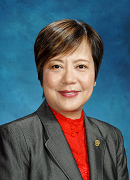
Head and Professor
School of Nursing
Assistant Dean (Education)
Li Ka Shing Faculty of Medicine
The University of Hong Kong
BIOGRAPHY
Professor Agnes F.Y. Tiwari
Professor Agnes Tiwari is Head of School of Nursing and Assistant Dean (Education) of Li Ka Shing Faculty of Medicine, The University of Hong Kong. Professor Tiwari received her Diploma of Nursing from the University of London, Master of Science in Social Research from the University of Surrey, United Kingdom and Doctor of Philosophy from the University of Wollongong, Australia. Also, she was awarded the Fellow of the American Academy of Nursing (FAAN) in recognition of her contribution to the nursing profession.
She is committed to research-based teaching and her educational research interests include the development and evaluation of nursing students' critical thinking, outcome-based education, problem-based learning, portfolio assessment, and constructive alignment. Recent awards for her scholarly work include Best of Journal of Nursing Scholarship from the Sigma Theta Tau International, the Teaching Medal from the Li Ka Shing Faculty of Medicine, the Outstanding Teaching Award from the University of Hong Kong.
She has published extensively including the much cited paper "From process to outcome: The effect of portfolio assessment on student learning", and "A comparison of the effects of problem-based learning and lecturing on the development of students' critical thinking" which was The Journal of Medical Education's second most cited paper in 2006.
Preparing Academic Supervisors and Clinical Mentors for Work-integrated Learning in Nursing Education
ABSTRACT
Preparing Academic Supervisors and Clinical Mentors for Work-integrated Learning in Nursing Education
It has long been recognized that the workplace is a unique and valuable learning environment for nursing students. However, it is also known that knowledge learned at the university is not transferred readily into practice in the reality of the workplace. Similarly, the transfer of the practical skills learned at university into workplace practice is often limited to an imitation of the context in which it was originally learned. Thus, questions have been raised about the capability of nursing graduates to move seamlessly into the reality of clinical work after their university education. Indeed, the term 'reality shock' has often been used to describe the difficulties experienced by new graduates during the transition from student to professionally practising nurse. Central to the problem is the long-standing, unresolved gap between the actualities of practice in the workplace and the culture of academic nursing in the university. This presentation will describe the planning and implementation of a clinical mentoring scheme that has been designed to prepare final-year nursing students better for their entry into the nursing workforce.
The medical and surgical units of a large, university affiliated, teaching hospital provide the context within which the clinical mentoring scheme takes place. Institutional support was secured through a series of meetings between senior administrators of the hospital and senior academic staff of the university to negotiate the staff development plans, organizational changes and costs associated with the proposed scheme. A model of clinical mentoring was worked out and agreed whereby a designated clinical nurse is appointed as the named tutor for each nursing student undergoing his/her final clinical practicum in a surgical or medical ward over a 4-month period immediately before completion of the baccalaureate programme in nursing. The students work closely with their mentors, even following the same shift patterns, in order to promote their socialization into new professional roles and reduce their sense of isolation and vulnerability. As a part of the capacity-building strategies, a structured mentoring programme, with planned follow-ups, is provided to the clinical mentors prior to their taking up the mentoring assignment. The roles and responsibilities of the academic supervisors and clinical mentors are delineated clearly and agreed. Specifically, models of teaching, facilitation and supervision necessary for the mutual integration of workplace and academic learning have been developed, implemented and refined as needed. Formative and summative evaluations provide feedback for the scheme's continuous quality improvement. The scheme is now in its 5th year of implementation, with positive outcomes in terms of student learning and professional socialization.
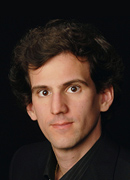
Associate Artistic Director
The Intimacy of Creativity - The Bright Sheng Partnership: Composers Meet Performers in Hong Kong
Composer-in-Residence/Adjunct Associate Professor Division of Humanities
The Hong Kong University of Science and Technology
BIOGRAPHY
Professor Matthew William Tommasini
Matthew Tommasini is Associate Artistic Director of the internationally-acclaimed workshop The Intimacy of Creativity – The Bright Sheng Partnership: Composers Meet Performers in Hong Kong at The Hong Kong University of Science and Technology where he also serves as Composer-in-Residence and Adjunct Associate Professor of Music. Mr. Tommasini holds degrees in music composition from the University of Michigan (DMA, MA) and UCLA (BA). He is a recipient of the Charles Ives Scholarship from the American Academy of Arts and Letters and grants from the ASCAP Foundation's Leonard Bernstein Fund and the American Music Center's Composer Assistance Program (CAP). He has been commissioned by prominent arts organizations including the Milwaukee Ballet, the New York Youth Symphony, and danzfest, the Italian international dance festival. His work has been performed by principal members of the Los Angeles Philharmonic, Dallas Symphony and the Detroit Symphony and by renowned chamber ensembles, including Daedalus Quartet, Antares, and Parker Quartet. He also serves as Composer-in-Residence of the southern California-based Connections Chamber Music Series, which he co-founded with members of the Pacific Symphony. His work is published by Alfred Publishing, recorded on the Centaur Records label, and has been featured on RTHK's Radio 4 and The Works television program.
Witnessing Creativity in Action – Stimulating Learning in the Creative Arts through Direct Engagement with Composers and Performers
ABSTRACT
Witnessing Creativity in Action – Stimulating Learning in the Creative Arts through Direct Engagement with Composers and Performers
The value of direct engagement with the creative process in creative arts education is explored through a discussion of The Intimacy of Creativity – The Bright Sheng Partnership: Composers Meet Performers in Hong Kong. The presentation begins by outlining the format and goals of the internationally-acclaimed, annual two-week workshop hosted by The Hong Kong University of Science and Technology (HKUST), which brings an international group of world-renowned performers and composers together with selected emerging composers to Hong Kong to revise and present chamber music compositions through in-depth open discussions and public performances. Specifically, the presentation explains how the workshop aims to turn the normally passive concert-going experience into an active, engaging one by asking audiences to re-think the traditional notion of a complete musical work, offering the unique opportunity to observe the revision process from start to finish. The presentation also explains how this project educates audiences about contemporary classical music, a genre little known and understood by the general public, by asking composers to speak about the ideas behind their work. The discussion continues by summarizing the direct impact of the workshop on Hong Kong audiences, including HKUST students enrolled in music courses, who, as part of the developing Creative Arts Program at HKUST, observe open discussions and public performances and write about their experiences. The discussion concludes with a summary of the project's broader engagement with the Hong Kong community via partnerships with Hong Kong-based arts and media organizations, including Radio Television Hong Kong (RTHK), the Leisure and Cultural Services Department (LCSD), and the Hong Kong New Music Ensemble (HKNME), among others, which play a key role in expanding the impact of the project and defining the event as an important part of arts and cultural offerings in Hong Kong.
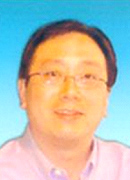
Associate Professor
Department of Science and Environmental Studies
The Hong Kong Institute of Education
BIOGRAPHY
Dr. Eric Po-keung Tsang
Dr. Eric Po-keung TSANG was academically trained as an environmental scientist specializing in pollution and environmental impact/feasibility studies. He is currently an Associate Professor in the Department of Science and Environmental Studies at The Hong Kong Institute of Education. His research interests are waste water treatment technology and applied ecology. He is active in the community in both the local and international scenes, proven by his chairmanship of Green Power Hong Kong, a major Green group, and his membership on the science panel of the International Year of Global Understanding initiated by the International Geographical Union (IGU). Over the years, he has also served in various government committees related to environmental protection and conservation. Examples are the Country Marine Parks Board, Environment and Conservation Fund, and the Environmental Campaign Committee. His current research projects include industrial waste water treatment involving electrochemical processes and nano-technology in collaboration with partners in Mainland China.
Aspects of Waste Water Treatment by Electrochemical Method and Nano-Technology: Their Possible Application in Hong Kong
ABSTRACT
Aspects of Waste Water Treatment by Electrochemical Method and Nano-Technology: Their Possible Application in Hong Kong
This presentation provides a brief overview of recent developments in waste water treatment using electrochemical processes and nano-Technology which can find possible applications in Hong Kong.
The presence of antibiotics as micropollutants in the environment, such as in municipal wastewater, surface water, ground water, and agricultural soils, has gained much attention in recent years. Antibiotics are used not only to prevent diseases and infection, but they are also added to animal feed at sub-therapeutic levels to promote weight production. Approximately 21.9 million pounds of antibiotics were administered to animals annually from 2002 to 2004 in the United States, but only a fraction of them were absorbed in the guts of animals. Consequently, up to 90% of administered antibiotics might be excreted into the environment via animal manure or urine. In this study, electrochemical degradation of antibiotics in water was carried out to provide reference for exploring a feasible way to treat these organics. A Ce doped SnO2 anode and Ti were used as an anode and cathode set in an undivided cell. Metronidazole (MNZ) was used as model compound. Electrolysis was performed in Na2SO4 electrolyte. The results showed that the Ce doping made the structure of the SnO2-Sb electrodes compact and multi-porous, and the efficiency of the process was increased.
Recently, Nano-scale zero-valent iron (NZVI) technology has also been widely used for the treatment of environmental pollutants. It has the advantage that the small particle size of the adsorbent results in a large specific surface area and hence a high density and great intrinsic reactivity of e surface sites. All of these lead to a high efficiency in the elimination of a variety of pollutants. However, the mechanism of contaminant removal by NZVI is still under debate, although several mechanisms have been proposed. In the study reported here, the mechanism for the absorption of MNZ by NZVI particles was established based on the experimental results obtained. The findings can be used for the optimization of conditions to be used for this treatment process.
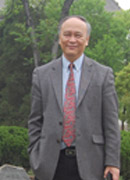
Associate Professor
Division of Social Science
The Hong Kong University of Science and Technology
BIOGRAPHY
Professor Jow Ching Tu
Prof. Tu Jow Ching, Division of Social Science, HKUST. The major research interests include population aging, mortality and health, fertility and gender, the socio-economic consequences of population changes.
Population Aging and Economic Growth
ABSTRACT
Population Aging and Economic Growth
With populations aging in nearly all countries, there has been widespread concern about the possible effects on economic growth and on the ability of countries to provide support for their elderly populations. In particular, because the elderly are in general less economically productive than younger people, a preponderance of old-age individuals would seem to suggest that (a) economic growth will be slower than in the past, and (b) relatively smaller working-age cohorts of the future will be burdened by the need to care for, and pay for the support of, the elderly population.
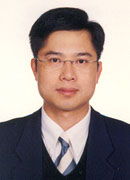
Associate Director
Institute for Enterprise
The Hong Kong Polytechnic University
BIOGRAPHY
Dr. Alwin Wong
Dr Alwin Wong is the Associate Director of the Institute for Enterprise at the Hong Kong Polytechnic University, actively driving university-wide knowledge transfer initiatives, addressing needs and interest in commercialization and entrepreneurship. His team's recent efforts are associated with the nurturing of innovative and entrepreneurial culture through the PolyU Micro Fund for both students and alumni. He also leads a team to support the development of the commercial, industrial and public sectors, by offering professional services in management consultancy, customized training for corporations, and executive development for focused sectors.
Concurrently serving as the General Manager of PolyU Technology & Consultancy Co. Ltd., Dr Wong oversees consultancy, professional services and licensing for the University rendered to the public.
Dr Wong also serves as Secretary-General of the International Strategic Technology Alliance (ISTA) comprising 24 top science and technology universities in China, UK and the USA. He is responsible for facilitating interest, exchange and development of activities/programs for R&D commercialization, knowledge transfer and international collaborations for members in the Alliance.
He has over 20 years of business development, project management and technology transfer experience for various industrial sectors, with engagements in turnkey engineering projects dating back to the early 1980's in China.
Cultivating Entrepreneurial Learning: An Out-of-Classroom Approach
ABSTRACT
Cultivating Entrepreneurial Learning: An Out-of-Classroom Approach
To stay competitive in this globalized, dynamically changing world, our society needs to have creative and socially responsible younger generation of leaders and entrepreneurs.
Universities offer an excellent environment to cultivate youngsters' creative and entrepreneurial thinking, skills, and knowledge. Similar strategic focus on entrepreneurship education has also been advocated in China although they are mostly permeated through conventional business plan competitions and entrepreneurship talks. Such education endeavours can leverage on the popularization of social networking across internet and mobile communication domains, as people are very much connected to the world with rich information on new concepts, ideas and opinions on current and social issues.
In this regard, entrepreneurial learning may be facilitated outside conventional teaching environments, putting creativity to innovation and even entrepreneurial engagements with experiential learning.
In 2011, The Hong Kong Polytechnic University launched the PolyU Micro Fund, as a pilot scheme associated with the University's knowledge transfer enhancement initiatives, aiming to cultivate innovation and "Do Well Do Good" entrepreneurial ambiance to stimulate creativity and social entrepreneurship among students and young graduates. The Scheme itself offered out-of-classroom learning platform on major aspects of entrepreneurial thinking for student and young graduates. Participants are enriched with experience gained through actual implementation of their awarded business propositions / innovative projects, supported by seed funding from the Scheme.
In addition to gaining financial, networking and mentoring support for execution of their businesses and projects, awardees also participated in a study mission to visit selected university incubators, start-up ventures and young entrepreneurs in Chinese mainland, with structured training workshops to help equip their skills to kick start their business endeavour.
In the long run, we aim to nurture a group of creative and socially responsible entrepreneurs and leaders as core members of the society to support Hong Kong's knowledge-based economy.
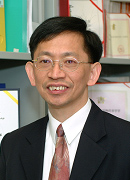
Director
Sino Forest Applied Research Centre for Pearl River Delta Environmen
Professor
Department of Biology
Hong Kong Baptist University
BIOGRAPHY
Professor Jonathan Wong
Dr. Jonathan Wong is a Professor of Environmental Science in the Hong Kong Baptist University, the Directors of the Applied Research Centre for Pearl River Delta Environment and Hong Kong Organic Resource Centre and the Executive Director of the Earth Tech Consultancy Co. Ltd. He was bestowed with the 'Medal of Honor (MH)' by the HKSAR government in 2011 for his service to the society. As the convener of the 'Task force for campus sustainability, HKBU' he seriously advocates the low-carbon living and sustainability of the resources to reduce our carbon foot print on ecosystem. He developed the first third party independent organic certification system in Hong Kong. Dr Wong has over 20 years of experience in solid waste management with expertise in biological waste treatment technology focusing on bioenergy and biomass production from organic wastes with purpose to develop solutions for the disposal of organic solid wastes as well as producing value added products from the waste. He authored over 350 refereed papers, conference proceedings, and technical and consultancy reports.
Composting a Solution for Organic Waste Management
ABSTRACT
Composting a Solution for Organic Waste Management
In Hong Kong, 3,715 and 1,243 tonnes/day of putrescible and special wastes, respectively, were landfilled during 2009, which occupies huge volume of our precious landfill space. Besides, decomposition of organic wastes becomes the source of methane in landfills, contributing to 8-10% of total anthropogenic methane. Hence, diverting waste from landfilling to other alternative treatment technologies such as composting becomes environmentally more sustainable. Composting, an economic and robust biological treatment technology, can convert organic waste into a value added fertilizer product resulting in financial incentives and most importantly conserving our earth resources.
Research at the Hong Kong Baptist University has developed composting technology that can be performed at community to pilot scale for organic waste generated in Hong Kong. A composter with treatment capacity of 100 kg/day was developed for community level-composting and demonstrated the feasibility of food waste separation and composting in public housing estate using Un Chau Estate as an example. The technology was scaled up to apply for the pilot scale 4 t/d in-vessel composting facility for food waste composting. The acidity problems encountered during food waste composting was successfully overcome by modification of the composting feedstock. The composts produced are of excellent quality and can be used in organic farming. Animal manures and other biosolids were also successfully composted in a 10 t/d in-vessel composters at the Ngau Tam Mei Animal Waste Composting Facility. In this case, one of the wastes, horse stable bedding material, was used to adjust the property of other wastes such as pig manure and sewage sludge; thus developed a sustainable resource management. The experience and technology gained from these pilot study should provide an excellent basis for large scale commercial operations. A 'cradle to cradle' approach using wastes as resources would reduce the carbon foot print on our ecosystem and make our environment safe which should be considered by our Government.
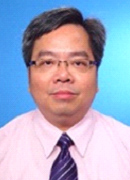
Assistant Professor
School of Science and Techonology
The Open University of Hong Kong
BIOGRAPHY
Mr. Ka Fai Wong
Wong Ka Fai is a register nurse (psychiatry) and has more than 15 years clinical experience in different specialties of psychiatric care and has established close network with different mental hospitals. Moreover, he has more than 6 years of solid working experience in the nursing team of the School of Science & Technology of The Open University of Hong Kong.
Enhancing the Self Care Ability through Intergenerational Knowledge Transfer Program in Elder Academy in Tuen Mun
ABSTRACT
Enhancing the Self Care Ability through Intergenerational Knowledge Transfer Program in Elder Academy in Tuen Mun
Expanding ageing population coupled with unhealthy lifestyle practices increases the prevalence of non-communicable disease (NCD) for all ages, with evidences telling us that the earlier an individual adopts healthy lifestyle habits, the lower his or her risk of contracting NCD during adulthood and beyond. In response to the Action Plan to Promote Healthy Diet and Physical Activity Participation in Hong Kong (Department of Health, 2010), the Asia-Pacific Institute of Ageing Studies piloted a project Health Frontier in Tuen Mun. The project linked universities, secondary schools and elder academies together to work in a coordinated manner for the promotion of positive health behaviors (foci include health promotion, disease prevention, health seeking behavior, chronic disease management) at different levels. The project adopted a train-the-trainer approach where professionals and professors were the master trainers to University students and elders, who adapted the knowledge and skills learned (in form of workshops and resources packs) into the secondary school curriculum. The trained secondary school students brought further the knowledge and skills acquired to elders who studied in their host elder academy. The program put intergenerational relationships on some readily available platforms (i.e. university, secondary school and elder academy) and leveraged on each other's strengths to promote health by advocating a life course perspective toward health. The train-the-trainer approach brought together community stakeholders, teachers, students, agency supervisors, elderly to facilitate cross-disciplinary, cross-sectoral, inter-generational exchange of experience and knowledge that reinforce the learning and adherence to positive health behaviors.
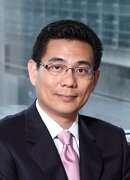
Vice President
Business Development & Technology Support
Hong Kong Science and Technology Parks Corporation
BIOGRAPHY
Ir. Allen Yeung
Ir. Allen TB Yeung holds the positions of Vice President, Business Development and Technology Support at Hong Kong Science and Technology Parks Corporation (HKSTPC). Ir. Yeung is responsible for incubating technology and innovative design startup companies, creating synergies among industry and academic sectors, and providing advanced laboratory support facilities for innovation and technology development. In this capacity, he works with government organizations, non-profit organizations, industry, associations and investment community groups to promote technology development in Hong Kong.
Ir. Yeung has over 20 years experience with extensive business and management background across private equity investment, information technology, and electronics industries.
Ir. Yeung serves as Founding Chairman of Hong Kong Business Angel Network (HKBAN); Chairman at the Hong Kong Technology & Renewable Energy Events (HKTREE) organizing committee; and Preliminary Judge Panel of Hong Kong Award for Industries - Technological Achievement.
He is the Board Member of Monte Jade Science & Technology Association of Hong Kong; the Fellow Member of The Hong Kong Institute of Engineers (FHKIE); and the Executive Committee Member of Green ICT Consortium (GICTC).
Ir. Yeung is an advisor to the Department of Electronic Engineering, the Chinese University of Hong Kong; the member of Dept Advisory Committee DAC of HK Polytechnic University's Electronic & Information Engineering Dept.; and the Advisory Committee (AC) of the Hong Kong Information Technology Industry Council (HKITIC) under Federation of Hong Kong (FHKI).
Experience Sharing on Technology Entrepreneurship
ABSTRACT
Experience Sharing on Technology Entrepreneurship
Hong KongScience & Technology Parks Corp runs technology incubation programme since 1992. During the course of the programme, we conduct periodic milestone reviews with each incubatees, in which we monitor their development and provide guidance to incubatees. In this talk, I will share my observations on some key areas where some incubatees are doing better than others, hence improving their chance of successes. I will also highlight some key services and financial support provided to incubatees. Key statistics of the programme will be shared.
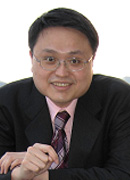
Joint-Professor
the Department of Chemical and Biomolecular Engineering and Division of Environment
The Hong Kong University of Science and Technology
BIOGRAPHY
Professor King Lun Yeung
Prof. King Lun Yeung, a joint-Professor of the Department of Chemical and Biomolecular Engineering and Division of Environment, received his Ph.D. in Chemical Engineering from the University of Notre Dame. Prof. Yeung's research is on smart materials in health, environment and energy applications, with more than 150 publications, 300 presentations and 12 inventions (ca. 36 patents) in these topics. Prof. Yeung is also editor of the Chemical Engineering Journal and member of editorial board of Catalysis Today, Recent Patents in Chemical Engineering, International Journal of Chemical Engineering. He is reviewer for major funding agencies around the world including USA's SBIR, PRF and NSF, UK's EPSRC and RSC, EU's F7, Singapores' A-Star and Czech's RCSS.
Smart Antimicrobials for Healthy Living Environment
ABSTRACT
Smart Antimicrobials for Healthy Living Environment
The World Health Organization (WHO) reported that one of the most common routes for transmission of infectious diseases is by indirect contact with surfaces contaminated with infectious droplets produced by the patient's coughing, sneezing and talking. Many microbes, including viruses can survive for days on surfaces. Hand contact with contaminated surfaces (i.e., fomites) and subsequent transfer of microbes to mucosal membrane of the mouth, nose and eyes is the cause of many reported gastroenteritis outbreaks (i.e., norovirus) and rhinovirus infections. Other pathogens known to transmit through fomites include cold virus, rotavirus, P.aeruginosa and methicillin-resistant S. aureus (MRSA). Regular cleaning and disinfection are therefore important for breaking the chain of infection, and the use of antimicrobial surface coating provides an additional safeguard against disease transmission. HKUST has developed a system of smart antimicrobials designed to treat and disinfect air, water and surfaces of harmful microorganisms. The antimicrobial systems create synergy in design and function to achieve multilevel action against microorganisms to ensure rapid disinfection and long-term protection. Smart responses were integrated in the design to achieve self-cleaning and self-disinfecting actions that are triggered by contaminating actions of touch and droplets. Laboratory, field and clinical tests were carried out to demonstrate the practical applications of these antimicrobial systems.
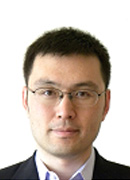
Assistant Professor
School of Business
The University of Hong Kong
BIOGRAPHY
Professor Yanfeng Zheng
Yanfeng Zheng is an assistant professor of entrepreneurship at Hong Kong University. He earned his Ph.D. in management at University of Wisconsin Madison in 2006. His research interests revolve around the nexus of strategy and entrepreneurship. Specifically, he studies how high-tech startups develop capabilities through organizational learning. His current research deals with how cognitive structures of founding teams affect their behaviors, especially when surprise events occur. He was the recipient of the Irene M. McCarthy Award for the best paper on the topic of High Technology and Innovation in 2006 at the Babson International Entrepreneurship Conference. His work has been published at leading management and entrepreneurship journals such as Strategic Management Journal, Journal of Business Venturing, Journal of Management Studies, and Journal of Small Business Management. Dr. Zheng has extensive teaching experience in organizational behavior, strategic management and entrepreneurship.
Turning New Business Ideas into Reality, Cases and Lessons from Hong Kong
ABSTRACT
Turning New Business Ideas into Reality, Cases and Lessons from Hong Kong
New venture creation has been proved to be a crucial driver of job creation and regional economy development worldwide. Hong Kong is no exception. Yet, few new ventures in Hong Kong were able to grow sufficiently to make meaningful contributions to employment and economy. According to the 2009 Global Entrepreneurship Monitor (GEM) survey, the majority of new firms in Hong Kong still hired fewer than 10 employees and concentrated in industries with small growth potential. The average annual sales of those new firms in Hong Kong were meager compared to financial or real estate groups in the same region. Companioned with low level of high-impact entrepreneurial activities in Hong Kong, most Hong Kong students and novice entrepreneurs have only meager understanding on how to start and grow new ventures even with brilliant ideas. Existing entrepreneurship education in Hong Kong is lack of a practical component. These facts are in stark contrast to the image of Hong Kong as a region friendly to new ventures because of its entrepreneurial tradition, mature legal system, professional workers, and support from Hong Kong S.A.R. government. In this session, I will explain these paradoxical observations. Specifically, I will discuss a few local business ideas and how their founders nurture their businesses. The purpose is to illustrate the challenges and opportunities facing entrepreneurs in the current and local environment. In the end, I will offer suggestions for students and novice entrepreneurs on what exactly they can do to turn their business ideas into reality.
Chairpersons
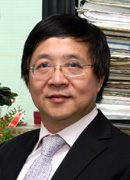
Director
Asia-Pacific Institute of Ageing Studies
Lingnan University
BIOGRAPHY
Professor Alfred Cheung Ming Chan
- Chair Professor of Social Gerontology, Department of Sociology and Social Policy, Lingnan University
- Director, Asia-Pacific Institute of Ageing Studies (APIAS), Lingnan University
- Director, Office of Service-Learning (OSL), Lingnan University
- Chairman, Elderly Commission, HKSAR
- Chair, Advisory Committee of 'Opportunities for the Elderly Project', Social Welfare Department, HKSAR
- Chair, Working Group on Diet and Physical Activity, Department of Health, HKSAR
- Member, Minimum Wage Commission, HKSAR
- Adjunct Professor, School of Continuing and Professional Education, The Hong Kong Institute of Education (HKIEd)
- Consultant, Ageing and Social Development Issues for the United Nations Economic & Social Commission for Asia and the Pacific (UNESCAP)
- Interpretation of intergenerational relationships
- Ageing and long-term care policies in Asia Pacific
- Development of health and social care measurements, Quality of Life, Caring Index and etc
-
Academic interests:
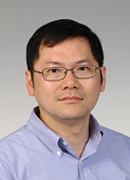
Head and Professor
Division of Environment
Professor
Department of Chemical and Biomolecular Engineering
Director
Institute for the Environment
The Hong Kong University of Science and Technology
BIOGRAPHY
Professor Chak Keung Chan
Dr. Chak K. Chan obtained BSc in Chemical Engineering from the University of Texas at Austin in 1986 and PhD in Chemical Engineering from the California Institute of Technology in 1992. He is currently Head and Professor of Division of Environment, Professor of Chemical and Biomolecular Engineering, and Director of the Institute for the Environment at HKUST. His research interests include air pollution, aerosol science and atmospheric chemistry. He has published over 100 papers with citations to date over 3700 and an H-factor of 32. He received Second Prize of the State Natural Science Award in 2010 and First Prize of the Natural Science Award in 2007. He is an Editor-in-Chief of Atmospheric Environment.
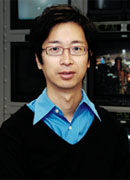
Director
School of Journalism and Communication
The Chinese University of Hong Kong
BIOGRAPHY
Professor Anthony Y.H. Fung
Anthony Y.H. Fung is a professor and Director in the School of Journalism and Communication at the Chinese University of Hong Kong. He received his Ph.D. from the School of Journalism and Mass Communication at the University of Minnesota in 1998. His research interests focus on cultural industries and cultural studies, popular music, gender and youth identity, cultural studies, political economy of culture and new media technologies. Recently, he has been conducting research on Asian game industries and China's media globalization. His new books are Global Capital, Local Culture: Transnational Media Corporations in China (2008), and Policies for the Sustainable Development of the Hong Kong Film Industry (2009) (co-authored with Chan and Ng).

Director of Student Affairs
The Hong Kong Polytechnic University
BIOGRAPHY
Mrs. Dorinda Fung
Dorinda Fung is the Director of Student Affairs at Hong Kong Polytechnic University. Mrs. Fung has a passion of providing opportunities to help students' holistic development.
Aligning with HKPU's mission of being an application-oriented university, Mrs Fung has been exploring for different internship platforms and models to connect students with the real world where they can experiment on applying what they have learned inside the classroom. Meanwhile it is HKPU's institutional policy to make work-integrated –education mandatory. All undergraduates will have to undergo some internship experience before graduation. Mrs. Fung and her team have been instrumental to the successful realization of this institutional commitment.
Mrs. Fung is also keen to add cultural exposure to work experience and thus she works diligently to expand students' internship horizons beyond Hong Kong. Since the mid nineties, HKPU has been enabling over 7,000 HKPU students to have internship experience offshore, to over 30 different countries and over 25 cities in the Chinese mainland. From 2004 to 2006, with a generous donation of $16M from The Hong Kong Jockey Club Charities Trust, Mrs. Fung was the Chairman of a joint-institution initiative that facilitated 1,000 students from the 8 local tertiary institutions to participate in offshore placements.
Dorinda has a background as an educator, and in various fields of psychology. She has been the Director of Student Affairs at HKPU since 2002. She provides leadership to 120 full-time staff and her responsibilities include overseeing psychological and careers counselling, personal and professional skills development, financial support, physical education, hall residences, scholarships and amenities.
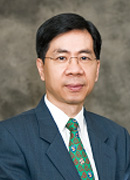
Professor of Management
School of Business
Associate Dean (Research)
Faculty of Business and Economics
The University of Hong Kong
BIOGRAPHY
Professor Simon S.K. Lam
Simon S.K. Lam is the Professor of Management at the School of Business of the University of Hong Kong. He is also the Associate Dean (Research) at the Faculty of Business and Economics. He earned his Ph.D. degree in Management from the Australian National University. Professor Lam is known for his research in organization development, entrepreneurship, leadership and cross cultural management. He has published 15 top-tier management journal papers and has over 70 other refereed international journal papers, book chapters, conference papers, and case studies on these subjects. Before joining the University of Hong Kong, Professor Lam worked as management consultant for a leading international management consultancy firm. Professor Lam consults for companies in Hong Kong, U.S.A. and Mainland China. He also serves as independent non-executive director for publicly listed companies in Hong Kong.
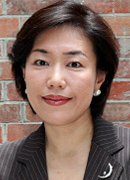
Associate Dean
Faculty of Arts
The University of Hong Kong
BIOGRAPHY
Professor Yoshiko Nakano
Dr. Yoshiko Nakano is Associate Dean in charge of outreach and development in the Faculty of Arts at the University of Hong Kong (HKU). She is responsible for coordinating various knowledge exchange activities at the Faculty, including the University Artists Scheme which brings artists of international calibre to HKU to share their experiences with students, staff and the community. One of her main goals is the promotion of diverse learning opportunities for students. In 2002, she and her colleagues in the Department of Japanese Studies initiated an ongoing internship programme with major Japanese organizations in the region. Her research and teaching interests include intercultural communication and the globalization of popular culture. Her latest book, Where There Are Asians, There Are Rice Cookers: How "National" Went Global via Hong Kong (HKUP 2009), recounts the rice cooker's odyssey from Japan to Hong Kong and beyond, and is intended for a general audience. As part of her efforts to reach out to the community, she sits on the Board of Directors of the Hongkong Japanese Club and is a regular contributor to the Asian edition of Yomiuri Shimbun.
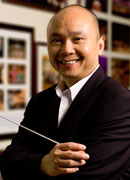
Dean of Students and Professor
Department of Cultural and Creative Arts
The Hong Kong Institute of Education
BIOGRAPHY
Professor Richard Tsang
Professor Richard Tsang has been, for many years, the Founding Chairman of the Hong Kong Composers' Guild, Vice Chairman of the Asian Composers' League (ACL), and President of the International Society for Contemporary Music (ISCM) (2002-2008), the first non-European to hold this position since the society's establishment by Arnold Schoenberg in 1923. He has been active as a promoter of contemporary music, and has organized many international exchange events and festivals in this field in the past three decades. As a composer, over 100 of his musical works have mostly been commissioned and/or performed by many local and international groups, including the Boston Symphony Orchestra, the Tokyo Philharmonic, the Seoul Philharmonic, and the Hong Kong Philharmonic, to name a few. He is also actively engaged as conductor of contemporary music and his own works.
Professor Tsang has received many awards, such as the Outstanding Young Persons Award (Hong Kong) in 1988, Composer of the Year Award (Hong Kong Artists' Guild) in 1989, and the CASH Golden Sail Award for Best Serious Composition in 2002. He is currently Professor of Music and Dean of Students at The Hong Kong Institute of Education, where he is actively involved in the formulation of student development policy as well as in the research and promotion of creative musicking concept and practices.

